

Thesis title: Investigating backgrounds in dark matter searches: Argon-37 activation and cosmogenic neutron suppression in the DarkSide experiments
Supervisor: Marcin Kuźniak, Masayuki Wada
Year of defence: 2025
Thesis title: Einstein Telescope: Detection of Binary Black Hole Gravitational Wave Signals Using Deep Learning
Supervisor: Tomasz Bulik, Mariusz Suchenek
Year of defence: 2025
Thesis title: Optimisation Of Light Collection In Liquid Argon Detectors And Modelling Pulse Shape Discrimination For Dark Matter Searches
Supervisor: Marcin Kuźniak
Year of defence: 2025
Thesis title: Probing stellar wind properties in Cygnus X-1 through X-ray variability
Supervisor: Barbara De Marco
Year of defence: 2025
(Villanova University, USA)
Thesis title: Pulsating Stars in Eclipsing Binaries
Supervisor: Krzysztof Hełminiak
Year of defence: 2025
(Observatoire de la Côte d'Azur, France)
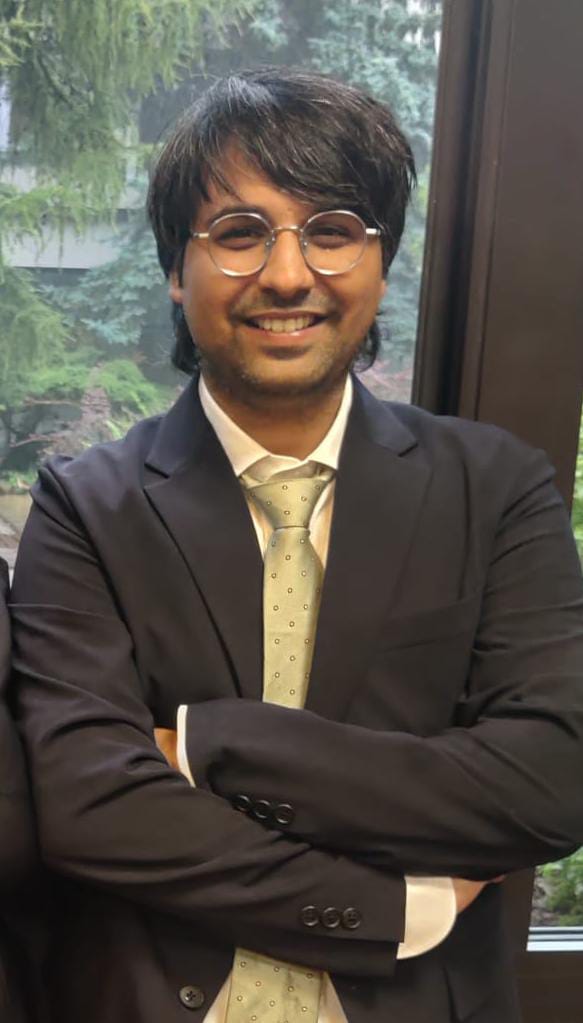
Rajeev was born in Uttarakhand, India. He obtained his integrated Bachelor’s and Master’s (BS-MS dual degree) in basic sciences with a major in physics from the Indian Institute of Science Education and Research (IISER), Pune. For his Master’s thesis, he worked at the Indian Institute of Astrophysics (IIA), Bengaluru, focusing on the spectroscopic study of neutron-capture elements in metal-poor stars. Rajeev joined the Nicolaus Copernicus Astronomical Center (CAMK, Warsaw) to pursue his PhD, working on classical Cepheids under the supervision of dr hab. Radosław Smolec. His doctoral research utilized photometry data from the Optical Gravitational Lensing Experiment (OGLE) survey to study non-evolutionary pulsation period changes in classical Cepheids. Following the completion of his PhD, Rajeev will join the Observatoire de la Côte d'Azur in France for his postdoctoral research.
Thesis title: On the Diversity of Classical Cepheid Variability. New Constraints on Low-Amplitude Periodicities, Binarity, and Non-Evolutionary Period Changes
Supervisor: Radosław Smolec
Year of defence: 2025
Thesis title: Measurement of Nuclear Recoils in Liquid Argon for Dark Matter Searches
Supervisor: Marcin Kuźniak, Masayuki Wada
Year of defence: 2025
Thesis title: Warm Coronae for Magnetically Supported Disks in Accreting Black Holes
Supervisor: Agata Różańska
Year of defence: 2024
Thesis title: Search for Dark Matter with Liquid Argon Detectors
Supervisor: Marcin Kuźniak, Davide Franco
Year of defence: 2024
(Silesian University of Opava, Czech Republic)

Fatemeh Kayanikhoo (Fatima) was born in Shiraz, Iran. She earned her master’s degree in astrophysics from Shiraz University in 2012. While studying astrophysics, she established an astronomical NGO and has been actively involved in outreach activities as an amateur astronomer since 2009. In 2015, she continued research in astrophysics in collaboration with Birjand University and Shiraz University. In 2019, Fatima received a six-month grant to work with Prof. Constança Providência at the University of Coimbra. She later joined CAMK as a PhD student under the supervision of Prof. Włodek Kluźniak and Dr. Miljenko Čemeljić, focusing on neutron star ultraluminous X-ray sources. Fatima completed her PhD in October 2024 and began a postdoctoral position at the Silesian University of Opava, Czech Republic, in November 2024.
Learn more about Fatima: https://fkayanikhoo.wixsite.com/fatima
Thesis title: Radiative simulations of moderately magnetized accreting pulsars as ultraluminous X-ray sources
Supervisor: Włodzimierz Kluźniak, Miljenko Čemeljić
Year of defence: 2024
Thesis title: Accretion and outflows in Newtonian and extreme gravity
Supervisor: Włodzimierz Kluźniak
Year of defence: 2024
Thesis title: Comprehensive study of low-mass Compact Hierarchical Triples using Eclipsing Binaries
Supervisor: Krzysztof Hełminiak
Year of defence: 2024
Thesis title: Morphology of Circumnuclear Accreting Gas in Active Galactic Nuclei
Supervisor: Alex Markowitz
Year of defence: 2024
Thesis title: TESS photometry of hot subdwarf stars
Supervisor: Andrzej Baran
Year of defence: 2024
Thesis title: Kepler photometry of two open clusters NGC6791 and NGC6819
Supervisor: Andrzej Baran
Year of defence: 2024
Thesis title: Excitation of pulsation in hot pre-white dwarf stars from an observational point of view
Supervisor: Gerald Handler, David Jones
Year of defence: 2024
Thesis title: Simulation of the dynamics and geometry of broad line region in active galactic nuclei
Supervisor: Bożena Czerny
Year of defence: 2023
Thesis title: Time-Domain and Spectroscopic studies of Active Galactic Nuclei.
Supervisor: Alex Markowitz
Year of defence: 2023
Thesis title: Extra Galactic Globular Cluster machinery based on MOCCA code for Star Cluster simulations.
Supervisor: Mirosław Giersz
Year of defence: 2023
Thesis title: The origin of binary black hole mergers
Supervisor: Tomasz Bulik
Year of defence: 2023
(Korean Astronomy and Space Science Institute (KASI), South Korea)
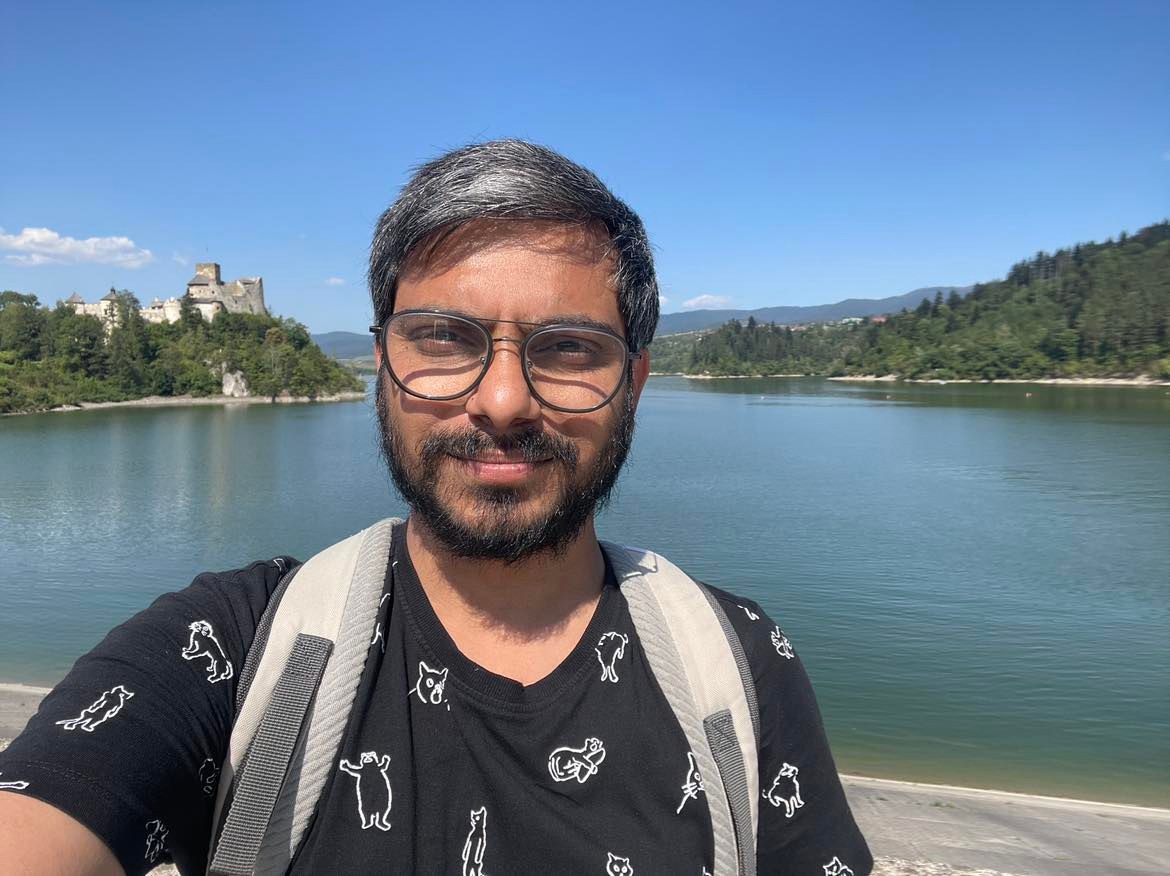
Chandra Shekhar Saraf was born in Sitamarhi, Bihar, India. He obtained his B.Sc. Honors degree in physics from The Maharaja Sayajirao University of Baroda, and M.Sc. degree in physics from the Savitribai Phule Pune University (formerly University of Pune). For his masters' thesis, he worked at the National Center for Radio Astrophysics in Pune, India on the topic of Lyman alpha radiative transfer to study the reionization period in the evolution of the Universe. He was awarded the V. Subramaniam prize by the Indian National Science Academy for his performance during masters degree. He joined CAMK in 2018 to work on testing cosmological models with cross-correlation between Cosmic Microwave Background lensing and galaxy surveys under the supervision of dr hab. Pawel Bielewicz and dr hab. Michal Chodorowski. His studies was an attempt towards resolving the tensions in modern cosmology like the S_8 tension. After the completion of PhD, Chandra Shekhar joined the Korean Astronomy and Space Science Institute (KASI) in South Korea for his postdoctoral work.
Thesis title: Studying tomographic cross-correlations between CMB gravitational lensing potential and galaxy surveys
Supervisor: Paweł Bielewicz & Michał Chodorowski
Year of defence: 2023
Thesis title: Dense matter properties and neutron star modelling
Supervisor: Julian Zdunik, Micaela Oertel
Year of defence: 2023
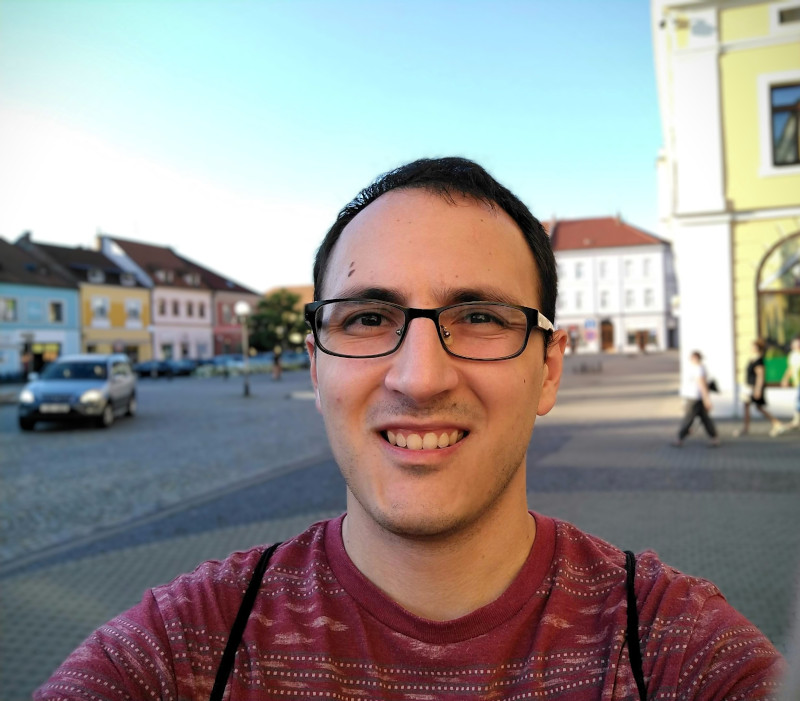
David Abarca grew up in the city of Centralia in Washington State in the USA. He received a Bachelor of Arts degree in Physics and Astrophysics at Harvard University. It was there that he developed an interest in numerical simulations after writing his senior thesis under the advisement of Prof. Ramesh Narayan and Dr. Aleksander Sądowski (another CAMK alumnus). After graduating, David spent another year at the Harvard-Smithsonian Center for Astrophysics continuing to work on research projects with Prof. Narayan and Dr. Sądowski. Through his close collaboration with Dr. Sądowski, he was persuaded to apply to the PhD program at CAMK. He was accepted under the supervision of Prof. Włodek Kluźniak. His main focus during the PhD was adapting the radiative hydrodynamic code, KORAL, to be able to simulate accretion disks around magnetized neutron stars. He also worked on the team who discovered Puffy Disks, involving close collaboration with the radiative astrophysics group at the Silesian University in Opava, Czech Republic. Ultimately, he elected not to pursue astronomy as a career, and instead decided to use his technical and analytical skills to transition into finance. He currently works at ING Hubs Poland in market risk management by validating models related to interest rate risk in the banking book.
Thesis title: Numerical simulations of accretion onto neutron stars
Supervisor: Włodzimierz Kluźniak
Year of defence: 2022
Thesis title: Disk-Planet Interactions: Formation of Mean-motion Resonances in a Gaseous Protoplanetary Disk
Supervisor: Ewa Szuszkiewicz
Year of defence: 2022
Thesis title: Constraining the geometry of the accretion flow in black hole X-ray binaries
Supervisor: Andrzej Zdziarski, Barbara De Marco
Year of defence: 2022
Thesis title: Thermodynamic methods for relativistic hydrodynamics
Supervisor: Brynmor Haskell
Year of defence: 2022
Thesis title: Applications of machine learning methods in gravitational-wave detectors data analysis
Supervisor: Michał Bejger, Elena Cuoco
Year of defence: 2022
Thesis title: Kinetic Numerical Simulations of Particle Acceleration Mechanisms in Relativistically Magnetized Jets
Supervisor: Krzysztof Nalewajko
Year of defence: 2022
(Institute of Philosophy and Sociology, Polish Academy of Sciences, Warsaw)
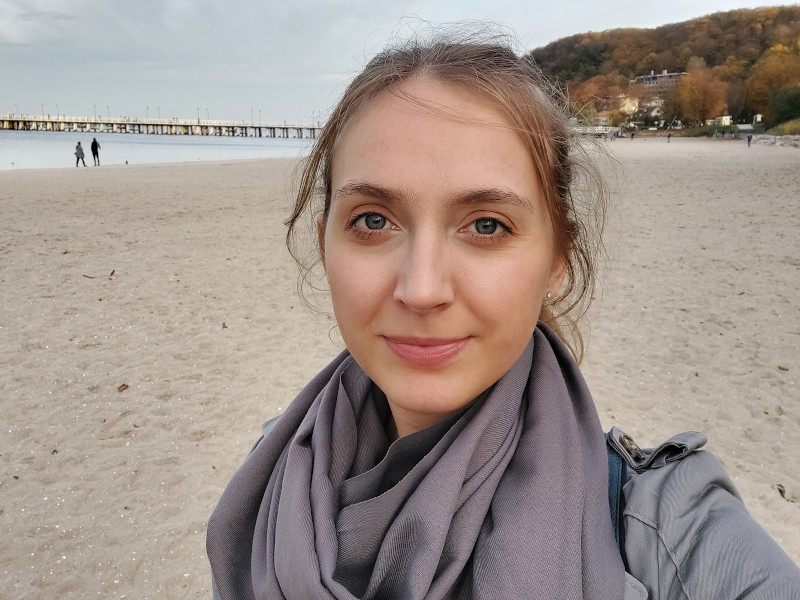
Katarzyna studied astronomy at the Nicolaus Copernicus University in Toruń, Poland, obtaining her BSc and MSc degrees for work focused on the radio morphologies of radio-loud active galactic nuclei (AGNs). Particularly interesting cases of her research were giant radio sources and radio galaxies with recurrent activity. In 2016 she moved to Warsaw where, under the supervision of Prof. Marek Sikora, she investigated the jet production efficiency in AGNs. This task incorporated thousands of galaxies for which a diverse radio dataset was collected, analyzed, and synthesized, resulting in a few well defined samples of galaxies. These studies confirmed the already known yet often questioned in the literature bimodal distribution of radio loudness, and supported the existence of certain threshold(s) condition(s) for the production of the strongest jets. Currently, and since 2020, she has been working as the Research Promoter at the Centre for the History of Renaissance Knowledge at the Institute of Philosophy and Sociology PAN where her analytical skills and goal-oriented mind allow her to help build a more robust research environment.
Thesis title: Observational constraints on jet production efficiency in Active Galactic Nuclei
Supervisor: Marek Sikora
Year of defence: 2022
(Tel Aviv University, Israel)
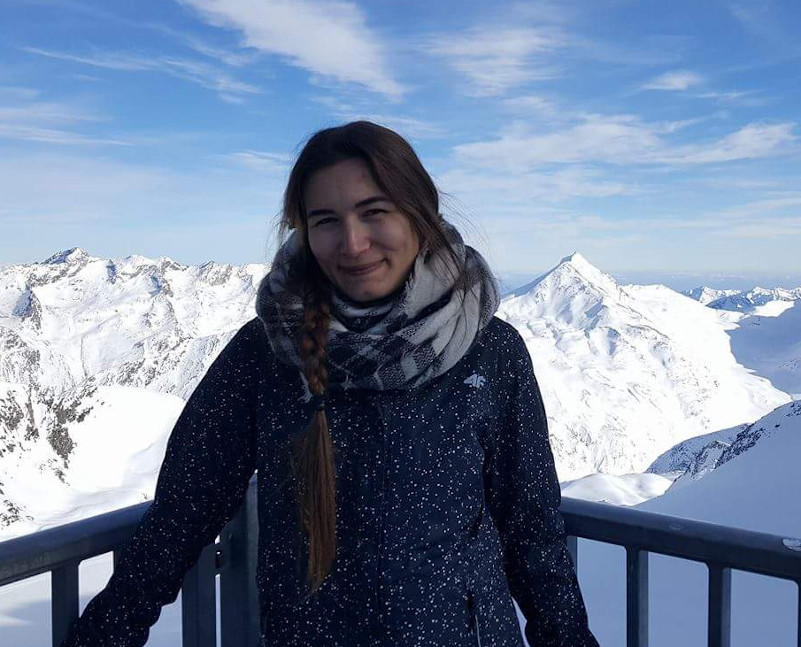
Marzena Śniegowska was born and grew up in Kruszwica, a small town in central Poland. She obtained his BSc. and MSc in Astronomy at the Faculty of Physics University of Wasaw. She joined as a PhD student at CAMK in 2018. During her PhD studies she worked with Prof. Michał Chodorowski of CAMK PAN and Prof. Bożena Czerny of CFT (Center for Theoretical Physics) PAN on time-dependent phenomena in active galactic nuclei, mostly radiation pressure driven thermal and viscous instabilities. Currently, Marzena is working as a postdoc in Tel Aviv University.
Thesis title: Variability and evolution of Active Galactic Nuclei
Supervisor: Bożena Czerny, Michał Chodorowski
Year of defence: 2022
(Princeton University, USA)
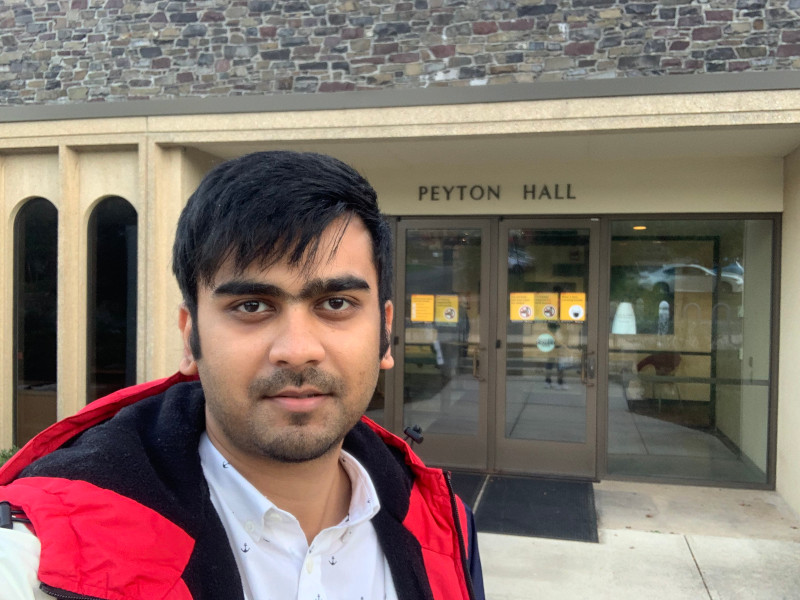
Ankan Sur was born in Kolkata, West Bengal, India. He obtained his BSc degree in physics from the St. Xavier's College of the University of Calcutta, and an MSc degree in Physics and Astronomy at the University of Amsterdam, where he was an Amsterdam Excellence Scholar. During his masters' thesis, he worked as part of the LIGO Virgo Collaboration on the statistical measurement of the Hubble constant. He joined CAMK to work on neutron star magnetic fields and on gravitational-wave mountains under the supervision of Dr. Brynmor Haskell. He was awarded the President's Scholarship of the Polish Academy of Sciences in 2021, and was also a predoc at the Flatiron Institute in New York. Following his completion of PhD, Ankan joined Princeton University in the US for his postdoctoral work.
Thesis title: Magnetic fields in isolated neutron stars: from the interior to the exterior
Supervisor: Brynmor Haskell
Year of defence: 2022
(Nicolaus Copernicus Astronomical Center)
Thesis title: Cefeidy klasyczne i II typu jako kosmiczne wskaźniki odległości
Supervisor: Grzegorz Pietrzyński
Year of defence: 2022
(Nicolaus Copernicus Astronomical Center)
Thesis title: Selected Methods of Precision Distance Determinations to Nearby Galaxies
Supervisor: Grzegorz Pietrzyński
Year of defence: 2022
(Institute for Research in Astrophysics and Planetology, France)
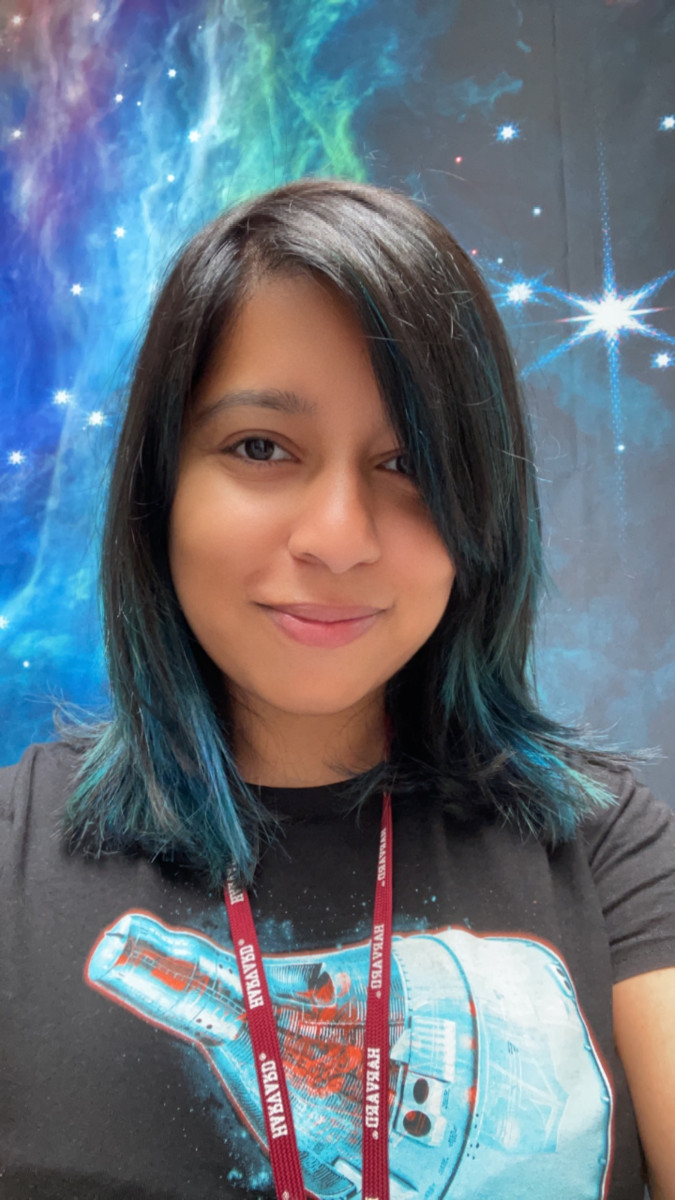
Maitrayee Gupta received her master’s of science in Cosmology from the University of Sussex in the United Kingdom. As part of that research, she studied the clustering properties of galaxies and the correlation between galaxy types and their mass, colour, and UV properties. She then joined the Nicolaus Copernicus Astronomical Centre to pursue a Ph.D. under Dr. Marek Sikora. The main objective of her thesis was to study differences between radiative properties of the accretion flows in Radio Loud (RL) and Radio Quiet (RQ) AGN and their relation to jet production efficiency, for which she received the Preludium Grant. She also received the NAWA Iwanovska Grant to research the variability of RL quasars at the Harvard Smithsonian Center for Astrophysics in MA, USA and a fellowship from the Harvard Smithsonian Center for Astrophysics to continue her research there with Dr. Aneta Siemiginowska after defending her thesis. She most recently moved to Toulouse, France where she is affiliated with the Institute for Research in Astrophysics and Planetology (IRAP) under CNRS, and CNES. There, she works as a postdoc developing EXODUS, a software tool for detecting faint rapid transients in XMM-Newton data that may not have been detected automatically using the XMM-Newton pipeline. While in France, she has also studied variability properties and black-hole masses of low-luminosity AGN. Her research interests include high-energy astrophysics, active galactic nuclei (AGN) and their host galaxies, and X-ray astronomy.
Thesis title: Comparison of AGN properties in luminous radio galaxies to their radio-quiet counterparts
Supervisor: Marek Sikora
Year of defence: 2021
Thesis title: Superfluid Neutron Star Dynamics
Supervisor: Brynmor Haskell
Year of defence: 2021
(Brera Astronomical Observatory, INAF, Merate, Italy)
Thesis title: Probing the nature of super-Eddington accretion in ultraluminous X-ray sources
Supervisor: Agata Różańska
Year of defence: 2021
(Nicolaus Copernicus Astronomical Center)
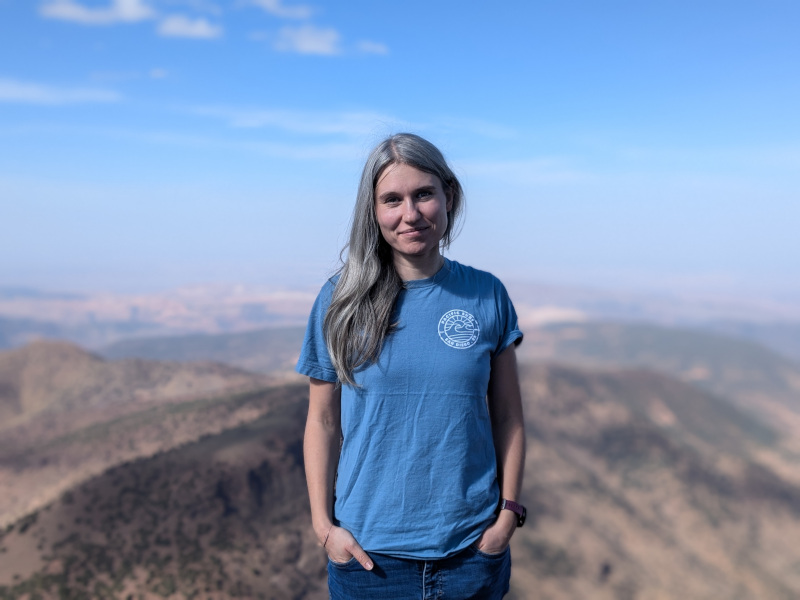
Henryka Netzel was born in Wrocław, Poland, where she completed her BSc studies in astronomy. She then moved to Warsaw to pursue an MSc degree at the University of Warsaw, followed by a PhD at the Nicolaus Copernicus Astronomical Center (CAMK). During her PhD, she studied classical pulsators and applied asteroseismology to infer their physical parameters.
After earning her PhD, she moved to Hungary, where she continued her research on classical pulsators using space-based observations at the Konkoly Observatory. She later joined a project at EPFL in Switzerland, focusing on spectroscopy of classical Cepheids. Currently, she is a member of the Araucaria Group at CAMK in Poland.
Thesis title: Badanie gwiazd klasycznego pasa niestabilności metodami asterosejsmologii
Supervisor: Radosław Smolec
Year of defence: 2021
Thesis title: Temporal Variability Processes in Discs and Shells around Compact Objects
Supervisor: Włodzimierz Kluźniak
Year of defence: 2020
Thesis title: Badanie populacji akreujących białych karłów
Supervisor: Joanna Mikołajewska
Year of defence: 2020
Thesis title: Rotating neutron stars: dense -matter interiors and gravitational-wave searches using time-domain F-statiscic methods
Supervisor: Michał Bejger
Year of defence: 2020
Thesis title: Tidally induced morphology of late type galaxies
Supervisor: Ewa Łokas
Year of defence: 2019
Thesis title: Detection of non-keplerian effects in eclipsing binary stars: from simulations to Solaris, a global network of robotic telescopes
Supervisor: Maciej Konacki
Year of defence: 2019
(Department of Astronomy and Theoretical Physics, Lund University, Sweden)
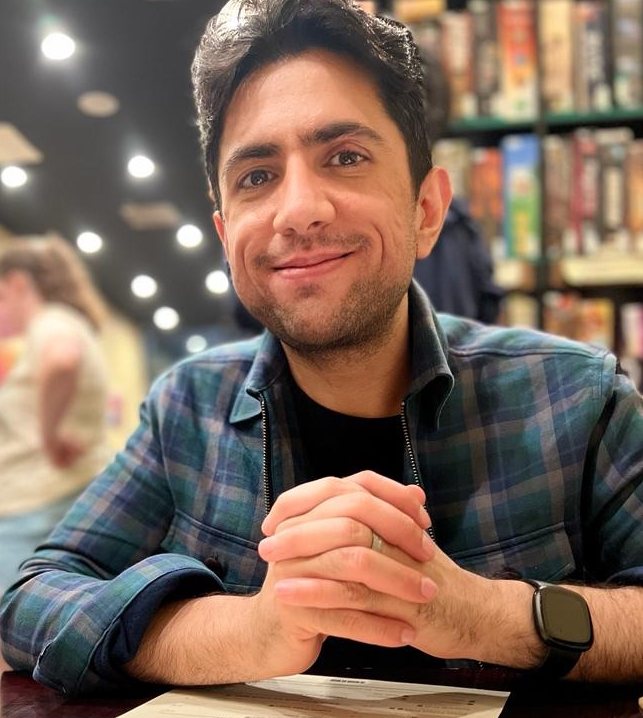
Abbas Askar was born and raised in Lahore, Pakistan, where he completed his primary and secondary education. Following the completion of his schooling in 2006, he was awarded a scholarship to attend University College Utrecht (UCU), the international honours college of Utrecht University in the Netherlands. Abbas graduated from UCU in 2009 with a Bachelor of Science (in physical sciences: astrophysics, mathematics and physics) and a Bachelor of Arts (in humanities: philosophy, religious studies and history) degree. In spring 2010, he spent a semester studying philosophy in a masters programme at the New School for Social Research in New York City. In 2010, he was selected and awarded a scholarship for the inaugural edition of the Astromundus (Erasmus Mundus) Joint Masters Degree programme in Astronomy and Astrophysics which was offered by a consortium of 5 European universities. During this programme, Abbas studied at the universities of Innsbruck (Austria), Padova (Italy) and Belgrade (Serbia). Towards the end of 2013, he joined the CAMK PhD program to work under the supervision of Prof. Mirek Giersz. For his PhD research, he used computer simulations to investigate the evolution of black hole populations within dense and massive star clusters. He is a part of the MOCCA code development team led by Prof. Giersz at CAMK. Following the completion of his PhD degree in 2018, Abbas joined Lund University in Sweden on a postdoctoral fellowship awarded by the Carl Trygger Foundation for Scientific Research. As of 2023, he is employed as a researcher in Astrophysics at Lund University. His research interests include understanding the formation, retention and growth of black holes within dense star clusters; the formation of gravitational wave sources and compact object binaries; and the co-evolution of nuclear star clusters and supermassive black holes.
Thesis title: Investigation of Black Hole Populations in Dense Stellar Systems using MOCCA code for Star Cluster Simulations
Supervisor: Mirosław Giersz
Year of defence: 2018
Thesis title: On cataclysmic variable properties in evolving star clusters based on MOCCA Dynamical Simulations
Supervisor: Mirosław Giersz
Year of defence: 2018
(Max Planck Institute for Extraterrestial Physics, Garching)
Thesis title: Tidally induces bars in dwarf galaxies
Supervisor: Ewa Łokas, Evangelie Athanassoula
Year of defence: 2018
(Nicolaus Copernicus Astronomical Center)
Thesis title: Modelling the mass distribution and orbital structure of dwarf spheroidal galaxies with Schwarzschild orbit superposition method
Supervisor: Ewa Łokas
Year of defence: 2018
(Inter-University Center for Astronomy and Astrophysics, Pune, India)
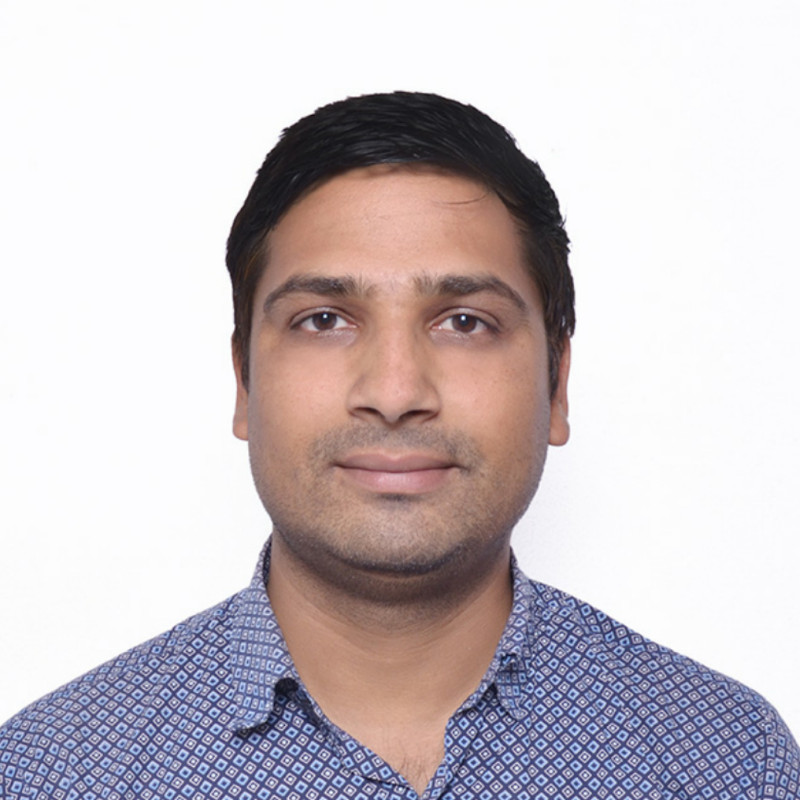
Tek Prasad Adhikari was born and grew up in Ilam, a small hilly region of Eastern Nepal. He obtained his B.Sc. in Physics from Mechi Multiple Campus of Tribhuvan University located at Bhadrapur, Nepal. He completed his M. Sc. in theoretical physics at the Central Department of Physics, Tribhuvan University, Kathmandu, and later joined as a PhD student at CAMK in 2013. During his PhD studies he worked with Prof. Agata Rozanska on various aspects of emission and absorption properties of Active Galactic Nuclei environment. Later in 2018, he received his PhD degree and he is currently working as a post-doctoral fellow at the Inter-University Center for Astronomy and Astrophysics (IUCAA), Pune, India. His current research interest is mainly focussed on building a synergy between the photoionization models and X-ray/optical observations of absorption and emission clouds present in the AGN systems. Apart from the research activities, Tek is interested in communicating science among the public and school students by writing popular articles and giving popular talks at the schools of remote areas of Nepal.
Thesis title: Photoionization modelling as a density diagnostic of line emitting/absorbing regions in Active Galactic Nuclei
Supervisor: Agata Różańska
Year of defence: 2018
Thesis title: Photometry and Spectroscopy of Selected Eclipsing Binaries with the Solaris Robotic Telescopes
Supervisor: Maciej Konacki
Year of defence: 2017
(Los Alamos National Lab, Los Alamos, USA)
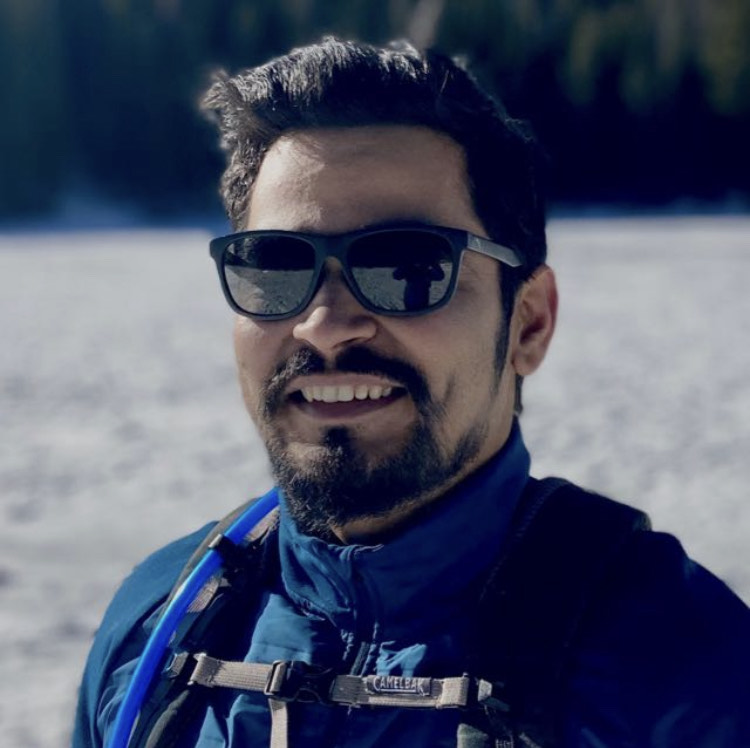
Bhupendra Mishra grew up in a small town in the state of Uttar Pradesh, India. He obtained his B.Sc. in Mathematics from Ewing Christian College, Allahabad, India. He did his M.Sc. in Physics from Indian Institute of Technology, Guwahati in 2012. Soon after M.Sc. he joined as a first foreign national PhD student of CAMK in 2012. He worked with Prof. Kluzniak and completed his PhD in 2017 on some of the first global 3D GRMHD models of thin accretion disks. He joined his first postdoc with Prof. Mitch Begelman at University of Colorado Boulder USA in 2017 and further studied strongly magnetized accretion disk models. Currently, he is a postdoctoral fellow at Los Alamos National Lab, Los Alamos, USA and working on MHD-PIC models and also global GRMHD models of AGN accretion disks.
Thesis title: General relativistic simulations of luminous and non-steady accretion flows
Supervisor: Włodzimierz Kluźniak
Year of defence: 2017
(Nicolaus Copernicus Astronomical Center, Warsaw)
Thesis title: Astrometry of selected globular clusters
Supervisor: Michał Różyczka
Year of defence: 2017
Thesis title: MHD simulations of time varying astrophysical flows
Supervisor: Włodzimierz Kluźniak
Year of defence: 2017
(Nicolaus Copernicus University, Toruń, Poland)
Thesis title: Comprehensive analysis of HT Cassiopeiae photometry - a Rosetta stone of dwarf novae
Supervisor: Arkadiusz Olech
Year of defence: 2016
(University of Warsaw)
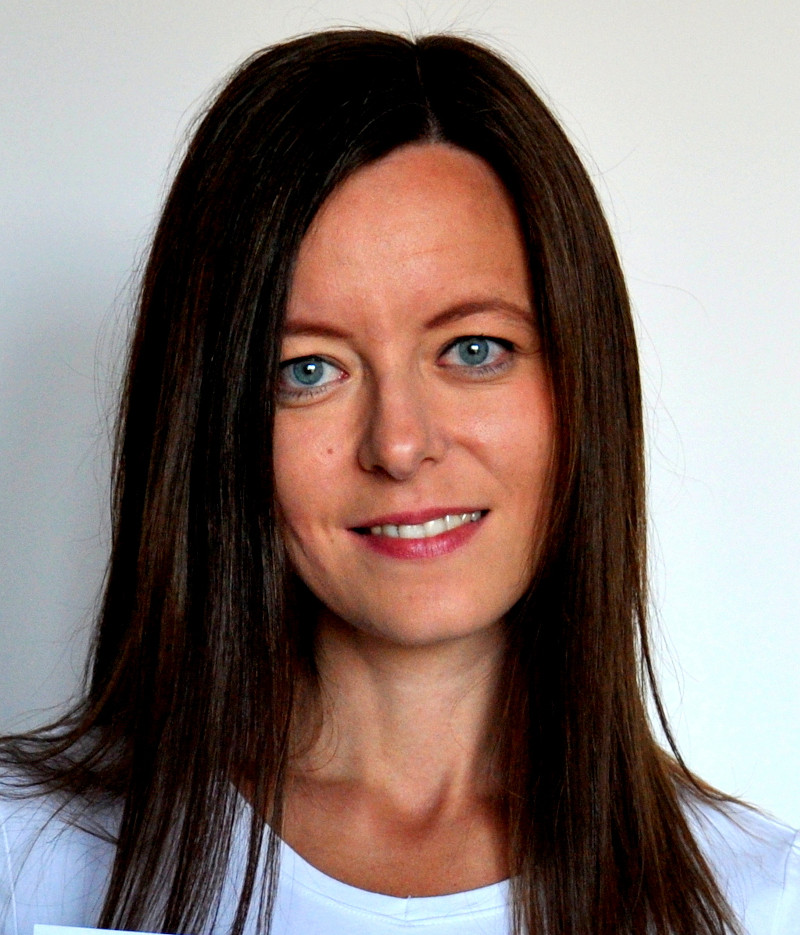
Milena was born and grew up in Poznań, where she graduated from Adam Mickiewicz University. She received her PhD degree from CAMK PAN in Toruń under the supervision of prof. Maciej Konacki. During her PhD studies she was actively involved in the Solaris project by setting up a network of robotic telescopes in the southern hemisphere. As a post-doc at the University of Wrocław, Milena started the collaboration with the BRITE consortium, which uses a constellation of nano-satellites to observe the brightest stars in our Galaxy.
Milena works at the Astronomical Observatory of the University of Warsaw as a member of the OGLE group - a large-scale photometric sky survey. Her scientific interests include variable stars, especially binary systems, as well as pulsating stars.
Apart from scientific interests, Milena is actively involved in many outreach activities. She communicates science via public talks, visiting schools, writing popular-science articles, reviewing books, and designing space-related games. She is also a Polish node representative of several international sci-comm projects and the Executive Secretary of the Polish Astronomical Society.
Thesis title: Precise determination of giant's parameters in eclipsing binary systems
Supervisor: Maciej Konacki
Year of defence: 2015
(Nicolaus Copernicus Astronomical Center)
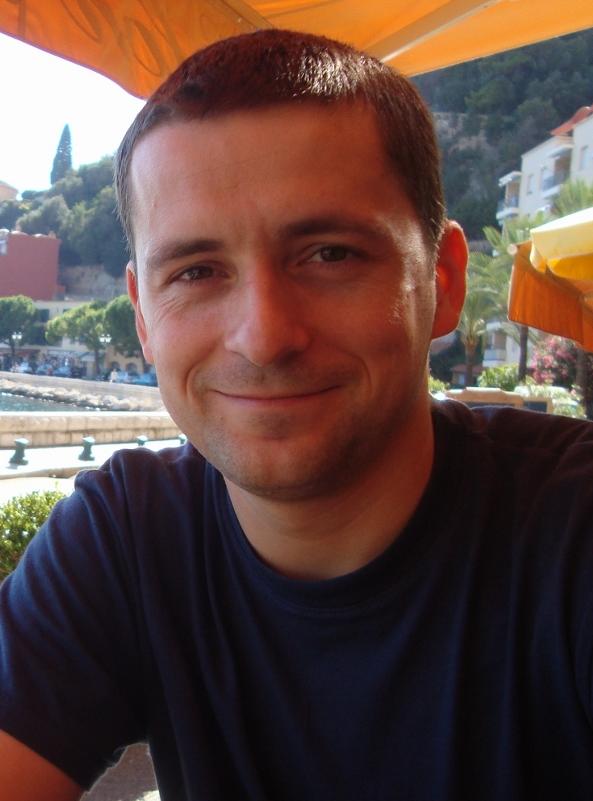
Arek studied astronomy at the Adam Mickiewicz University, and wrote his master's thesis at the Max Planck Institute in Bonn. He received his PhD at NCAC in 2014 with a thesis on blue stragglers in globular star clusters. Since then, star clusters have become his main scientific interest. He is one of the developers of the MOCCA code that can be used to perform detailed numerical simulations of star clusters of any size. In addition, he is interested in distributed data analysis. He develops BEANS software, which he uses on a daily basis to analyze hundreds of terabytes of MOCCA data. Arek worked as a postdoc in Leiden and in Poznań, he collaborated with other scientists in the USA, UK, China and Germany, and now is back at the NCAC in Warsaw.
Thesis title: Properties of blue straggler populations in evolving star clusters based on the MOCCA dynamical simulations
Supervisor: Mirosław Giersz
Year of defence: 2014
(Astronomical Observatory Institute, Adam Mickiewicz University, Poznań, Poland)

Magdalena Otulakowska-Hypka completed her master's studies at the A. Mickiewicz University (AMU) in Poznań and doctoral studies at N. Copernicus Astronomical Center in Warsaw on the topic of dwarf novae. She spent some time on research collaboration in the field of close binary stars in several foreign astronomical institutes: in Bonn, Nice, NYC, Leiden, and Garching. In the meantime, she's had two wonderful children and is now working hard to combine family life with science. She works at AMU, and her main scientific interests are now symbiotic stars and novae.
Thesis title: Study of outbursts properties of dwarf novae
Supervisor: Arkadiusz Olech
Year of defence: 2014
Thesis title: Detection Techniques for the H.E.S.S. II Telescope, Data Modeling of Gravitational Lensing and Emission of Blazars in HE-VHE Astronomy
Supervisor: Rafał Moderski, Jean Francois Glicenstein
Year of defence: 2013
(National Center for Nuclear Research, Poland)
Thesis title: Weak Emission Line Quasars
Supervisor: Bożna Czerny
Year of defence: 2013
Thesis title: Hybrid Oscillations of a Main Sequence B Type Stars
Supervisor: Aleksiej Pamiatnych
Year of defence: 2013
(Center for Theoretical Physics of the Polish Academy of Sciences, Poland)
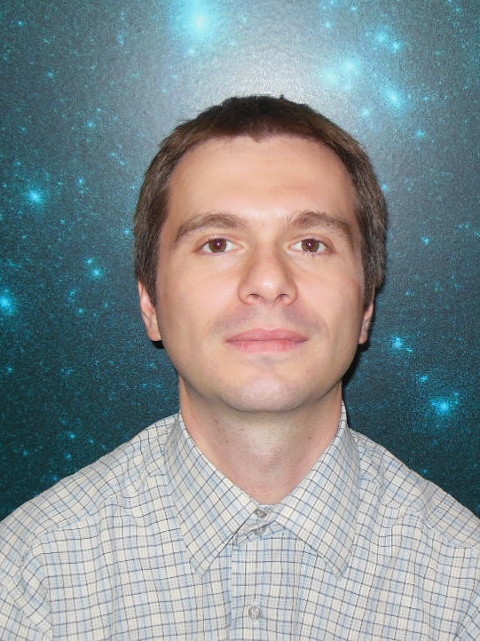
Thesis title: Motion of the Local Group as a Cosmological Probe
Supervisor: Michał Chodorowski
Year of defence: 2012
Thesis title: Analysis of stellar propoer motions in the fields of neary globular clusters
Supervisor: Janusz Kałużny
Year of defence: 2012
(Nicolaus Copernicus Astronomical Center)
Thesis title: Evolution & Dynamics of Neutron Stars: from Microphysics to Astrophysics
Supervisor: Leszek Zdunik
Year of defence: 2012
Thesis title: O rezonansach ruchu średniego we wczesnych etapach ewolucji układów planetarnych
Supervisor: Ewa Szuszkiewicz
Year of defence: 2012
(University of Maryland, Baltimore County & NASA Goddard Space Flight Center, USA)
Thesis title: Studies of the Influence of Magnetospheric Pulsar Winds on the Pulsar Surroundings
Supervisor: Bronisław Rudak, Alain Falvard, Yves Gallant
Year of defence: 2012
Thesis title: Tidal Evolution of Dwarf Galaxies in the Local Group
Supervisor: Ewa Łokas
Year of defence: 2011
(Nicolaus Copernicus Astronomical Center)
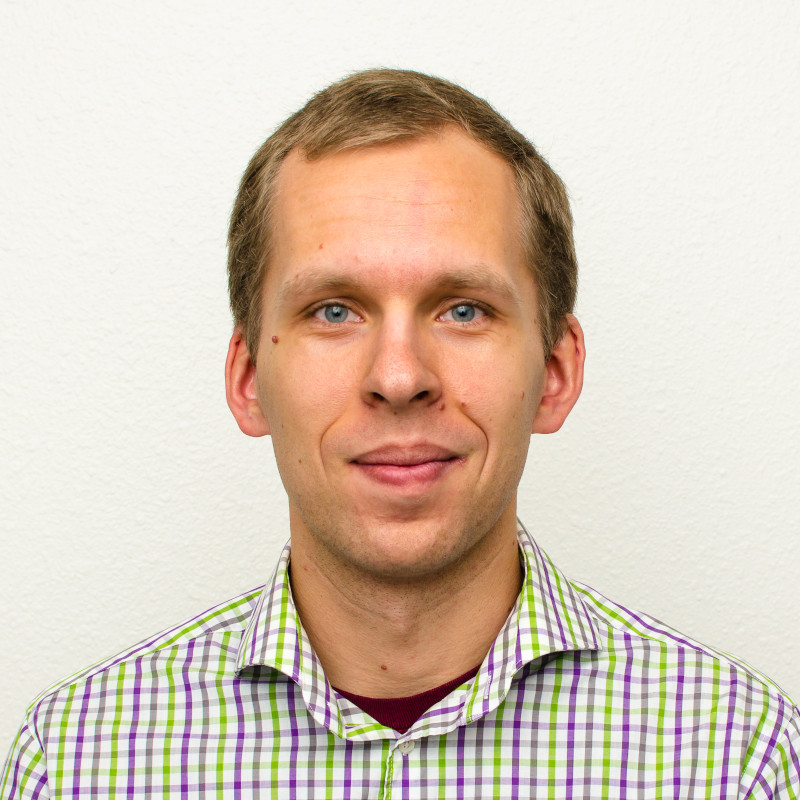
Krzysztof Nalewajko grew up in Ostróda, at high school he was a winner of the national astronomical olympiad. He studied astronomy at the University of Warsaw and went on to CAMK for Ph.D. studies, working on the topics of dissipation in relativistic jets of active galaxies and non-thermal emission of blazars under the supervision of Prof. Marek Sikora. He obtained a Ph.D. degree in 2011 and went on for postdoctoral positions in the USA. He spent 3 years at the University of Colorado Boulder, working with Profs. Mitchell Begelman and Dmitri Uzdensky on relativistic magnetic reconnection and kinetic plasma simulations. In 2013 he was awarded the NASA Einstein Postdoctoral Fellowship. He then spent 1 year at the Stanford University, working with Profs. Roger Blandford and Grzegorz Madejski. In 2015 he returned to CAMK for a tenure-track position, obtained habilitation in 2017 and became a tenured institute professor in 2018. He continues working on kinetic simulations of relativistic magnetic reconnection, utilizing the largest Polish supercomputers. Official website: https://users.camk.edu.pl/knalew/
Thesis title: Reconfinement Shocks in Jets of Active Galaxies
Supervisor: Marek Sikora
Year of defence: 2011

Aleksander Sądowski studied accretion flows on black holes through numerical simulations. He was a postdoctoral fellow at Harvard-Smithsonian Center for Astrophysics and an Einstein Fellow at Massachusetts Institute of Technology. He developed KORAL - one of the most sophisticated, at that time at least, numerical codes for performing radiative simulations of magnetohydrodynamical flows in strong gravitational fields. Currently, he is a senior quantitative researcher at Akuna Capital where he optimizes algorithms trading in financial markets.
Thesis title: Slim Accretion Disks Around Black Holes
Supervisor: Marek Abramowicz
Year of defence: 2011
Thesis title: Astrophysical Estimation of the Black Hole Spin
Supervisor: Marek Abramowicz
Year of defence: 2011
(Astronomical Observatory, University of Warsaw)
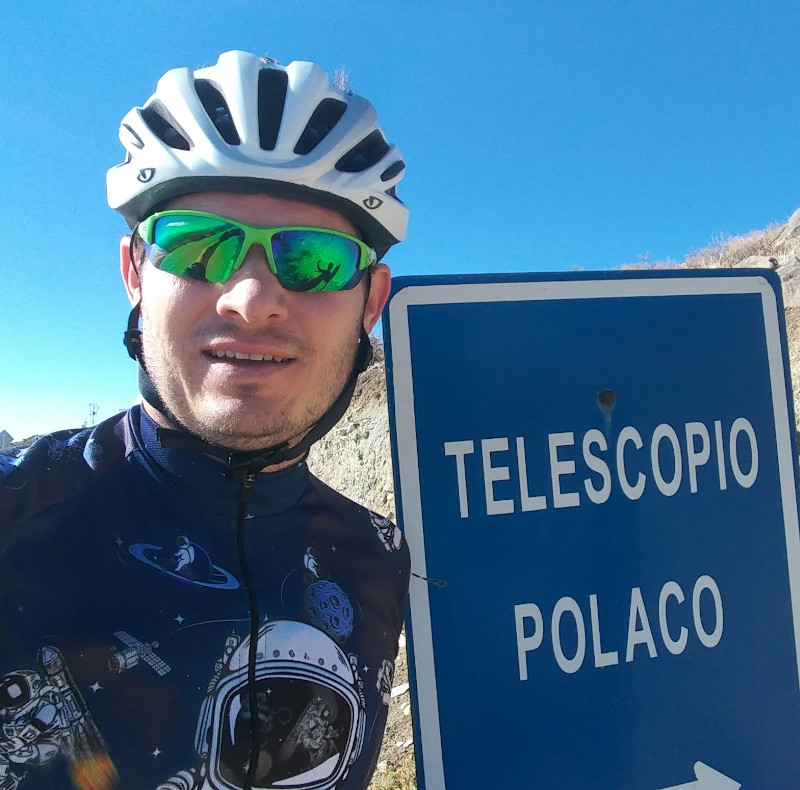
Thesis title: Physical Parameter of Symbiotic Stars
Supervisor: Joanna Mikołajewska
Year of defence: 2010
(Center for Theoretical Physics of the Polish Academy of Sciences, Poland)
Thesis title: Cosmology of the Scalar-interacting Dark Matter
Supervisor: Roman Juszkiewicz
Year of defence: 2010
(Nicolaus Copernicus Astronomical Center, Toruń)
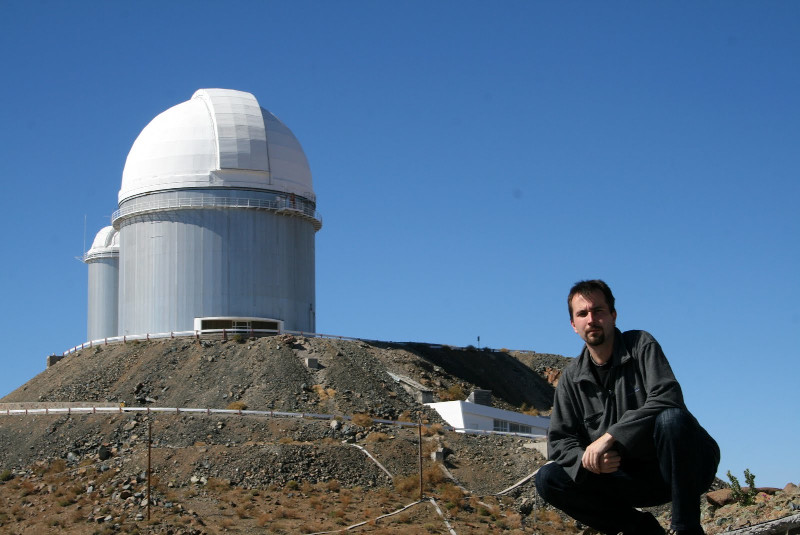
Krzysztof was born in Barlinek. He obtained his master's degree in astronomy from the Nicolaus Copernicus University in Toruń based on the work on astrometry of visual binaries with adaptive optics. In 2006 he started PhD studies at the NCAC Toruń, working on low-mass stars in binaries, under the supervision of Prof. Maciej Konacki. He obtained his PhD in October 2010, and immediately started his post-doc position at the Pontificia Universidad Catolica in Santiago, Chile. He extended his work on eclipsing binaries to other types of stars, and established the Comprehensive Research with Echelles on the Most interesting Eclipsing binaries (CREME) project, aimed at looking for and characterizing rare, unusual, and otherwise valuable stellar pairs. This work has been continued during his second post-doctoral term, at the Subaru Telescope in Hawaii. In 2016 Krzysztof came back to where he started - Toruń - to continue his work at the NCAC branch.
He is broadly interested in eclipsing binaries, their observations and modelling, as well as looking for planets around them. During his time in Chile and Hawaii, Krzysztof was also working in several large international collaborations, like the Vista Variables in Via Lactea (VVV), Strategic Exploration of Exoplanets and Disks with Subaru (SEEDS) or the Hyper-Supreme Cam (HSC) consortium, as well as helped in several other projects (e.g. HAT-South, Kepler). He is also involved in the Solaris project, namely in the search for circumbinary bodies with eclipse timing variations. He continues his work on precise characterization of eclipsing binaries, focusing on the satellite-borne observations with TESS and (future) PLATO missions. He is also one of the most active Polish astronomers in terms of proposals submitted to ESO.
His favorite aspect of the astronomer's job are the travels. Apart from Chile and Hawaii, his work duties (observations, conferences, scientific collaborations) took him for example to Australia, Argentina, South Africa, Brazil, or Japan.
Thesis title: Derivation of Fundamental Parameters of Late-Type Stars in Binaries with Precise Photometry, High-Resolution Spectroscopy, Imaging with Adaptive Optics and Optical Inteferometry
Supervisor: Maciej Konacki
Year of defence: 2010
(Nicolaus Copernicus Astronomical Center, Toruń)
Thesis title: Observations of Molecular Material in the Echo of V838 Monocerotis in Rotational Transitions of CO. The Nature of the Echo Material and Photo-Processing of Dust in the Light Echo
Supervisor: Romuald Tylenda
Year of defence: 2010
Thesis title: Selected Aspects of Gravitational Interaction Between a Protoplanetary Disk and a Protoplanet
Supervisor: Michał Różyczka
Year of defence: 2010
(Niels Bohr Institute, Denmark)
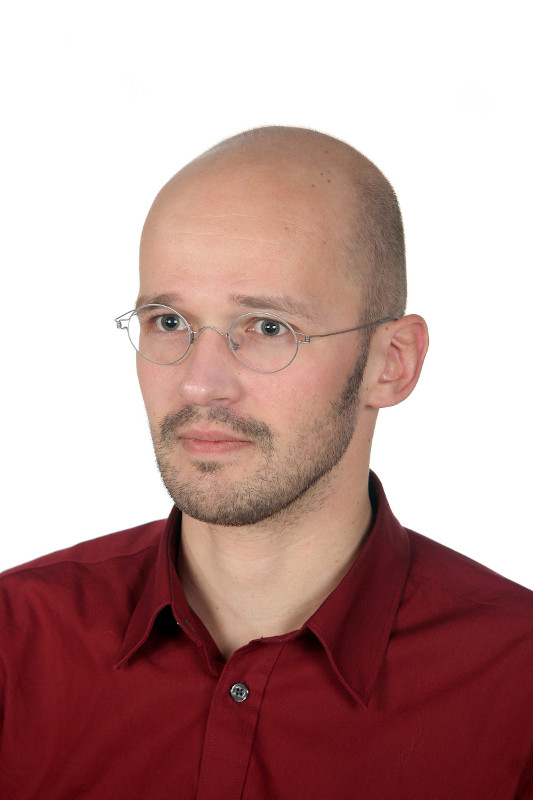
Radek Wojtak studied astronomy at the Jagiellonian University. His PhD research undertaken in the NCAC was focused on developing new dynamical models of galaxy clusters for the purpose of constraining dark matter content in these objects. He obtained a Ph.D. degree in 2010 and then he worked as a postdoctoral fellow in the Niels Bohr Institute (DARK excellence centre) at the University of Copenhagen and Stanford University. In 2017 he returned to the Niels Bohr Institute, where he is currently an associate professor. His current scientific interests include topics such as dark matter and dark energy, cosmological simulations, gravitationally lensed supernovae and observational tests of cosmological models. He is a member of the Young Supernova Experiment transient survey, where he leads a group searching for gravitationally lensed supernovae. He is also co-coordinating establishing a data centre of the Rubin Observatory (LSST) in Denmark.
Thesis title: Mass Distribution and Galaxy Orbits in Nearby Galaxy Clusters
Supervisor: Ewa Łokas
Year of defence: 2010
Thesis title: Observational Properties of SU UMa Type Dwarf Novae
Supervisor: Arkadiusz Olech
Year of defence: 2009
(Nicolaus Copernicus Astronomical Center)
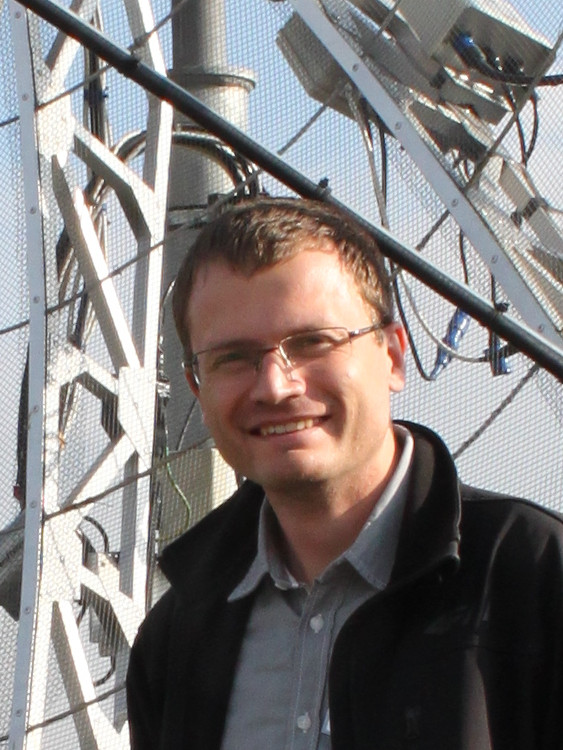
Radoslaw Smolec was born and grew up in Grudziądz. His interest in astronomy developed thanks to attending local astronomy club led by Małgorzata Śróbka-Kubiak in Grudziądz Planetarium and Astronomical Observatory. At the end of secondary school, he was introduced to the world of pulsating stars by prof. Wojciech Dziembowski, while travelling back home from astronomical Olympiad in Chorzow.
Master thesis, "Metallicity dependence of the Blazhko effect", was defended in 2004 under the supervision of prof. Paweł Moskalik, a faculty member at CAMK PAN. After that, Radoslaw continued his research via PhD program at CAMK PAN, supervised by prof. Moskalik. As part of his PhD research he developed nonlinear convective pulsation codes, recently implemented in the Modules for Experiments in Stellar Astrophysics (MESA) as Radial Stellar Pulsation (RSP) tool. Investigation of pulsation-convection coupling continued also during the post-doctoral research conducted in Astronomical Institute of the University of Vienna (2009-2011). Since 2012 he is back at the Copernicus Center leading various projects related to classical pulsators. Fields of expertise include stellar pulsation and stellar evolution theories, non-linear modelling of radial stellar pulsations and time-frequency analysis of photometric time series. Habilitation degree received in 2016.
Today Radoslaw Smolec is leading his own research group addressing various problems of stellar evolution and stellar pulsation theories. He is a member of the Araucaria Team and developer of the MESA.
Thesis title: Nonlinear modelling of radial stellar pulsation
Supervisor: Paweł Moskalik
Year of defence: 2009
(Institute of Physics, Pedagogical University of Krakow, Poland)
Thesis title: Eclipsing Binaries as Indicators of Age and Distance
Supervisor: Janusz Kałużny
Year of defence: 2009
(Department of Astrophysics, Radboud University, the Netherlands)
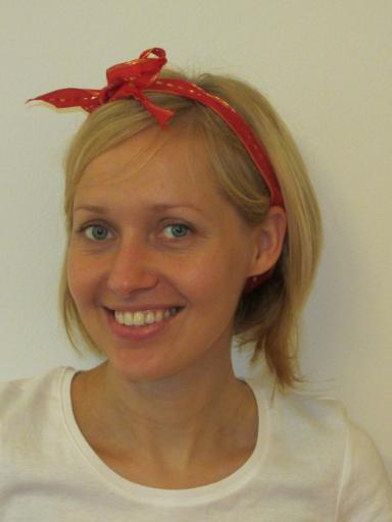
Monika Moscibrodzka received her Master's degree in 2004 at the University of Warsaw. In 2008 she completed PhD studies in our Institute under the supervision of prof. Bożena Czerny. In the following years she held post-doctoral positions in University of Illinois and University of Nevada. Now she is an Assistant Professor in Radboud University, the Netherlands. Her field of research is relativistic astrophysics. She is a core member of the Event Horizon Telescope Collaboration.
Thesis title: The Dynamics and Radiation Spectra of Low Angular Momentum Accretion Flow onto a Black Hole
Supervisor: Bożena Czerny
Year of defence: 2008
(University of Tasmania)
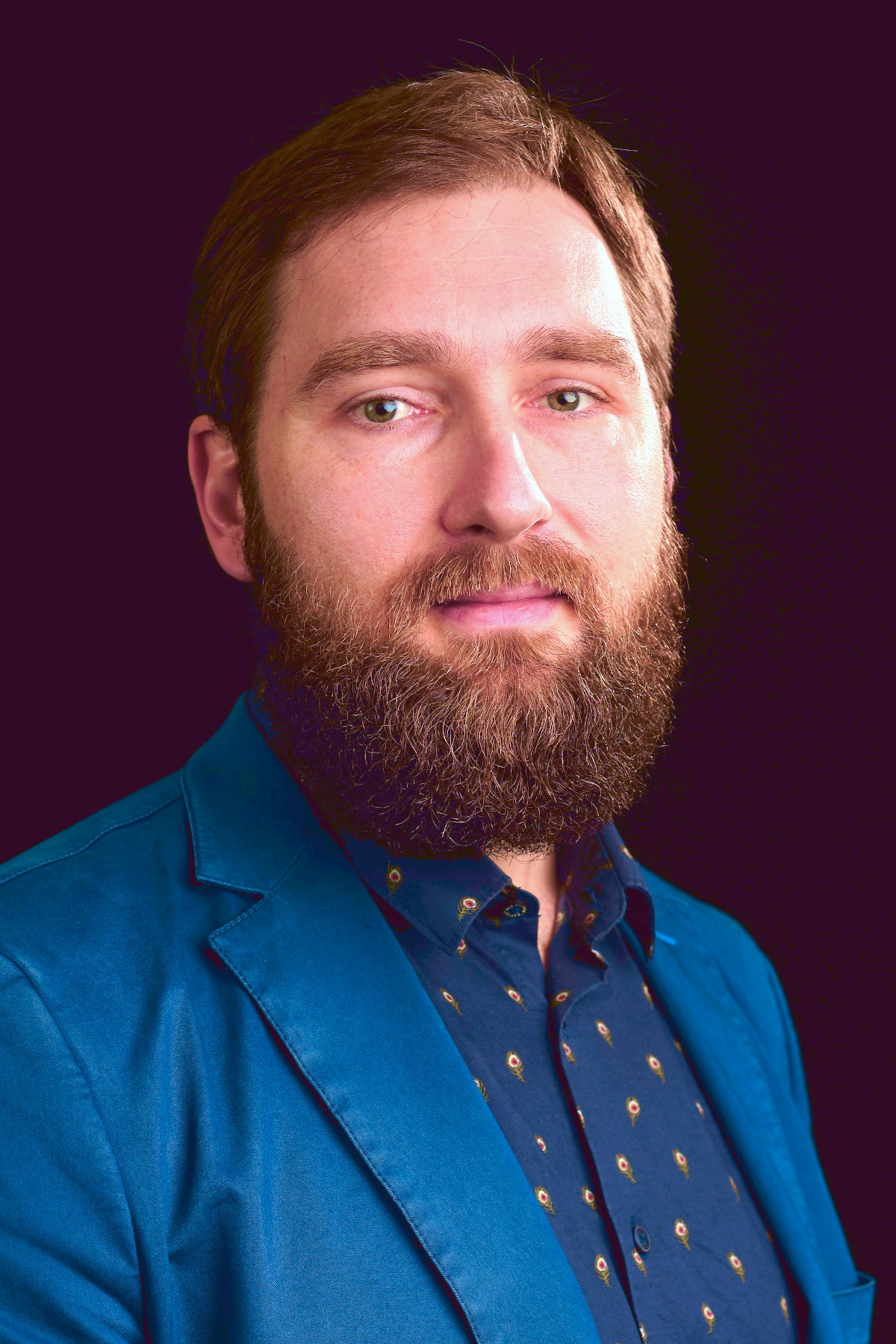
Krzysztof Bolejko studied at our Institute between 2004 and 2007. During this time he investigated inhomogeneous cosmological models under the supervision of prof. Andrzej Krasiński. The results he obtained laid foundations for the book "Structures in the Universe by Exact Methods: Formation, Evolution, Interactions", which was published by the Cambridge University Press.
After his PhD he held several prestigious post-doctoral fellowships, in Australia, United States, South Africa and Europe. These include Peter and Patricia Gruber Foundation Fellowship at University of Melbourne, Fulbright Fellowship at Steward Observatory or Marie Curie Fellowship at University of Oxford. In 2017 he obtained habilitation from the Jagiellonian University. Since 2018 he has been a Fellow of the Astronomical Society of Australia, and since 2019 a Fellow of the Higher Education Academy.
He is now a Senior Lecturer in Physics at the University of Tasmania. His field of expertise is theoretical cosmology, and his research focuses on general relativity and investigation of the nature of gravity.
Contact: krzysztof.bolejko@utas.edu.au
Thesis title: Application of Inhomogeneous Solutions of the General Relativity to Cosmology
Supervisor: Andrzej Krasiński
Year of defence: 2007
Thesis title: Selected Aspects of Periodic and Quasi-Periodic Variability of Accreting Black Holes
Supervisor: Bożena Czerny
Year of defence: 2007
(Astronomical Observatory, University of Warsaw)
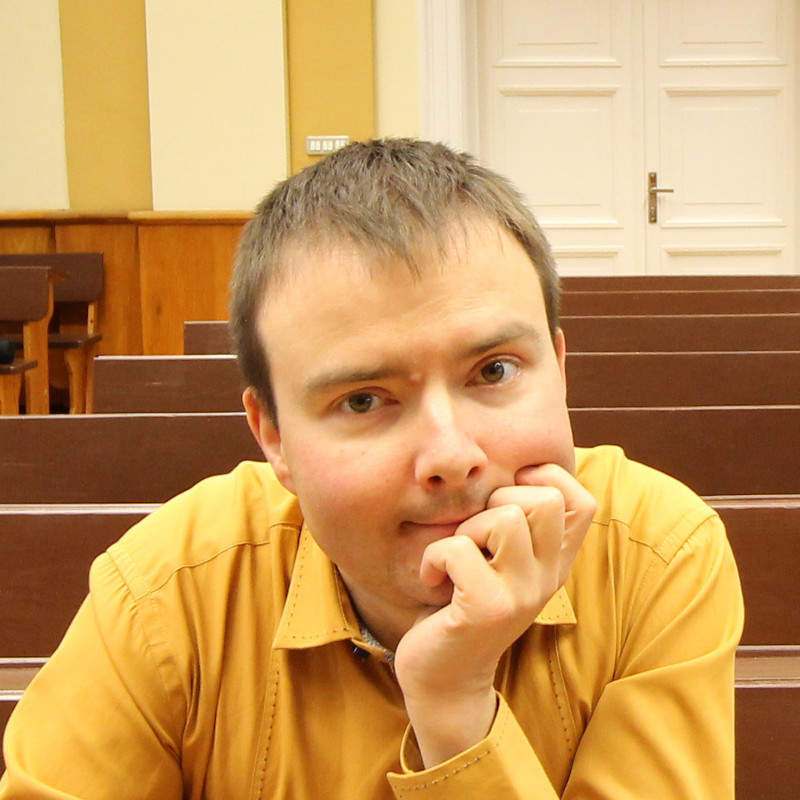
Paweł Pietrukowicz was born in Gorzów Wielkopolski in 1978. In 1997 he moved to the Polish capital to start his astronomical career at the University of Warsaw (MSc, 2002) and to continue at Nicolaus Copernicus Astronomical Center (PhD, 2007). His research interests focus on structure and evolution of the Milky Way, properties of stellar clusters and variable stars, mainly pulsating stars. He earned a lot of observational experience during his postdoctoral position at Catolica University in Santiago de Chile in years 2007-2009. Since 2010 Paweł Pietrukowicz works as Assistant Professor at Astronomical Observatory, University of Warsaw. He is an active member of the Optical Gravitational Lensing Experiment (OGLE) team. His most important achievements include the discovery of a new, unexpected class of pulsating stars named Blue Large-Amplitude Pulsators (2017), discovery of thousands of variable stars of various types in the Galactic disk (2013), and detection of the first, very rare phenomenon of the gravitational microlensing in a globular cluster (2005).
Thesis title: Searches for Dwarf Novae in Globular Clusters Based on CASE Data
Supervisor: Janusz Kałużny
Year of defence: 2007
Thesis title: Modelling and Data Analysis of the High-mass X-ray Binaries Cyg X-1 and Cyg X-3
Supervisor: Andrzej Zdziarski
Year of defence: 2007
(Nicolaus Copernicus Astronomical Center, Toruń)
Thesis title: Observational Aspects of Oxygen and Carbon Stars Evolution in Post-AGB Phase
Supervisor: Ryszard Szczerba
Year of defence: 2006
(Nicolaus Copernicus University, Toruń, Poland)
Thesis title: Pulsar Characteristic Across The Energy Spectrum
Supervisor: Bronisław Rudak
Year of defence: 2006
(Center for Astrophysics | Harvard & Smithsonian, USA)
Małgorzata Sobolewska is an X-ray astronomer working at the Smithsonian Astrophysical Observatory in the High Energy Astrophysics Division. She works on understanding high energy phenomena associated with the accretion onto compact objects such as black holes and neutron stars. To do this, she uses X-ray telescopes aboard various satellites in order to record radiation emitted by quasars and X-ray binaries, and she builds theoretical models to explain the properties of this radiation. She is also a member of the Operations and Science Support Division in the Chandra X-ray Center, where her main activities include monitoring and trending analysis of the subsystems of the Chandra X-ray Observatory, NASA's flagship mission for X-ray astronomy.
Thesis title: Spectral and Timing Methods of Studying Geometry of Accretion onto Compact Objects
Supervisor: Piotr Życki
Year of defence: 2006
(Nicolaus Copernicus Astronomical Center)
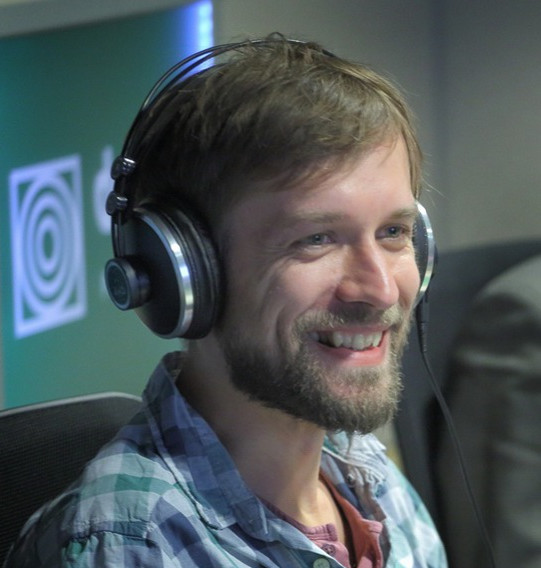
Michał Bejger's research interests revolve around the gravitational-wave astronomy: its data analysis methods (and, in general, methods of analyzing any difficult, noisy data) and modeling of various astrophysical compact objects using numerical general relativity, and the physics of extremely dense matter in the interiors of neutron stars. This often requires a lot of coding, the use of high-performance computing (with hardware accelerators like the Graphical Processing Units) and applications of novel types of machine learning algorithms. In the past, he was a Marie Curie fellow and a visiting astronomer at the Paris Observatory, as well as research scientist in the Steinbuch Centre for Computing in Karlsruhe, Germany the Wigner center in Budapest, Hungary, and the Paris AstroParticule et Cosmologie gravitational-waves group (APC). He has been a member of the LIGO-Virgo collaboration since 2011, and a work group leader of the COST action G2Net since 2018. He is also actively involved in the popularization of science, being an editor of the astronomy section of the science magazine ''Delta'' since 2011.
Thesis title: Neutron Star Dynamics and the Dense Matter Equation of State
Supervisor: Paweł Haensel
Year of defence: 2005
(Nicolaus Copernicus Astronomical Center)
Thesis title: AMR Models of Protoplanetary Discs
Supervisor: Michał Różyczka
Year of defence: 2005
Thesis title: Nonlinear Couplings in Multimode Stellar Pulsations
Supervisor: Wojciech Dziembowski
Year of defence: 2005
Thesis title: Late Stages of Stellar Evolution in Binary Systems
Supervisor: Romuald Tylenda
Year of defence: 2004
(National Center for Nuclear Research, Poland)
Thesis title: Mass and Radius Determination of X-ray Bursts Source MXB 1728-34
Supervisor: Jerzy Madej
Year of defence: 2004
(University of Bialystok, Faculty of Physics, Poland)
Thesis title: Global Parameters of Active Galactic Nuclei
Supervisor: Bożena Czerny
Year of defence: 2004
(Nicolaus Copernicus Astronomical Center)
Thesis title: Wyznaczanie kosmologicznego parametru Beta przy użyciu prędkości i przyśpieszenia Grupy Lokalnej
Supervisor: Michał Różyczka
Year of defence: 2003
(Nicolaus Copernicus Astronomical Center, Toruń)
Thesis title: Radiative Processes in the Magnetospheres of Isolated Neutron Stars
Supervisor: Bronisław Rudak
Year of defence: 2003
(Center for Theoretical Physics of PAS)
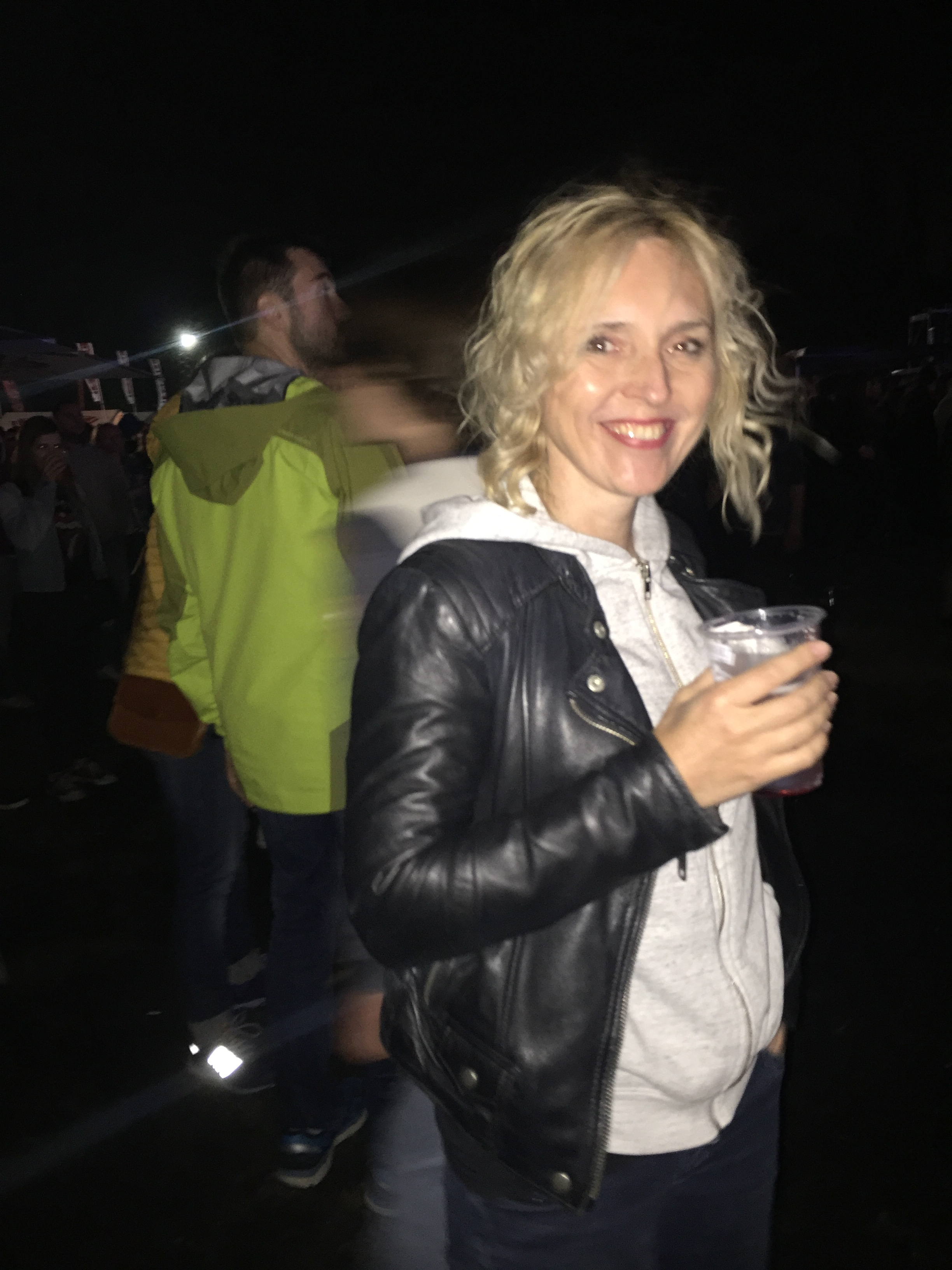
Agnieszka Janiuk was born and grew up in Warsaw. She studied astronomy at the Physics Department of the Warsaw University, where she received her Master of Science degree in 1998. She learned there about the physics of accretion, and active alactic nuclei, thanks to the course given by dr Andrzej Kurpiewski. The MSc thesis was prepared however under the supervision of prof. Bozena Czerny, who was a faculty member at the N. Copernicus Astronomical Center, Polish Academy of Sciences. After that, Agnieszka Janiuk continued her research via PhD program at NCAC, and she worked with prof. Czerny on the accretion pocesses in AGN and Galactic black hole X-ray binaries (XRBs). As a part of that PhD, she developed a new numerical code for simulating the global structure and time evolution of an unstable accretion disk, which is subject to radiation pressure driven theramal and viscous instabilities. The code is now publicly available under the name GLADIS and serves mainly for pedagogical purposes.
The postdoctoral projects of Agnieszka, started in 2003 at Max Planck Institute for astrophysics in Garching, and then continued with prof. Daniel Proga at the University of Nevada, Las Vegas, and finally during the tenure-tarck contract at CAMK, were devoted mostly to the cosmic explosions named gamma ray bursts. These phenomena share some physical properties of the formerly mentioned black hole systems, but they are much more violent in nature. They are launching ultrarelativistic jets on the cost of black hole rotation and accretion mediated by the strong magnetic fields. In addition, nuclear reactions that occur in the very hot and dense plasmas of their accretion disks, lead to copious emission of neutrinos. Finally, as we know now from gravitational wave observations and their electromagnetic counterparts, many GRBs originate from binary neutron star mergers, whose ejecta are the nucleosynthesis sites for the heavies elements in the Universe.
From 2010, Agnieszka Janiuk works as a faculty member at the Center for Theoretical Physics of PAS. Since then, she leads her own research group, and has already supervised a number of post-docs, PhD projects and Master students. In 2021, she was awarded the full professorship in natural sciences by the President of Poland.
Official website: http://old.cft.edu.pl/astrofizyka/?page_id=98
Thesis title: Disk Accretion onto a Black Hole
Supervisor: Bożena Czerny
Year of defence: 2003
Thesis title: A Simple Model of the Evolution of Solids in Protoplanetary Disk
Supervisor: Michał Różyczka
Year of defence: 2003
(Institute of Physics, Pedagogical University of Krakow, Poland)
Thesis title: Spektroskopia i fotometria wybranych układów prekataklizmicznych
Supervisor: Marek Sarna
Year of defence: 2003
Thesis title: Modeling the Gamma-Rays Flares in Blazar Jets
Supervisor: Marek Sikora
Year of defence: 2002
Thesis title: Photometry and Analysis of Cepheids in the M31 and M33 Galaxies
Supervisor: Janusz Kałużny
Year of defence: 2002
Thesis title: Analysis of the X-ray Background Radiation
Supervisor: Andrzej Sołtan
Year of defence: 2002
Thesis title: Radiative Processes in Accreting Black Holes
Supervisor: Andrzej Zdziarski
Year of defence: 2002
(Nicolaus Copernicus Astronomical Center)
Thesis title: Population Synthesis in Modern Astrophysical Applications
Supervisor: Tomasz Bulik
Year of defence: 2001
Thesis title: Spectral States of Galactic Black Hole Binaries
Supervisor: Andrzej Zdziarski
Year of defence: 2000
Thesis title: Statistical Properties of the Cosmic Velocity Fields - Numerical Simulations
Supervisor: Michał Różyczka
Year of defence: 2000
(National Center for Nuclear Research, Poland)
Thesis title: Testing the Gravitational Instability Theory with 2-D Galaxy Surveys
Supervisor: Roman Juszkiewicz
Year of defence: 2000
(Nicolaus Copernicus Astronomical Center)
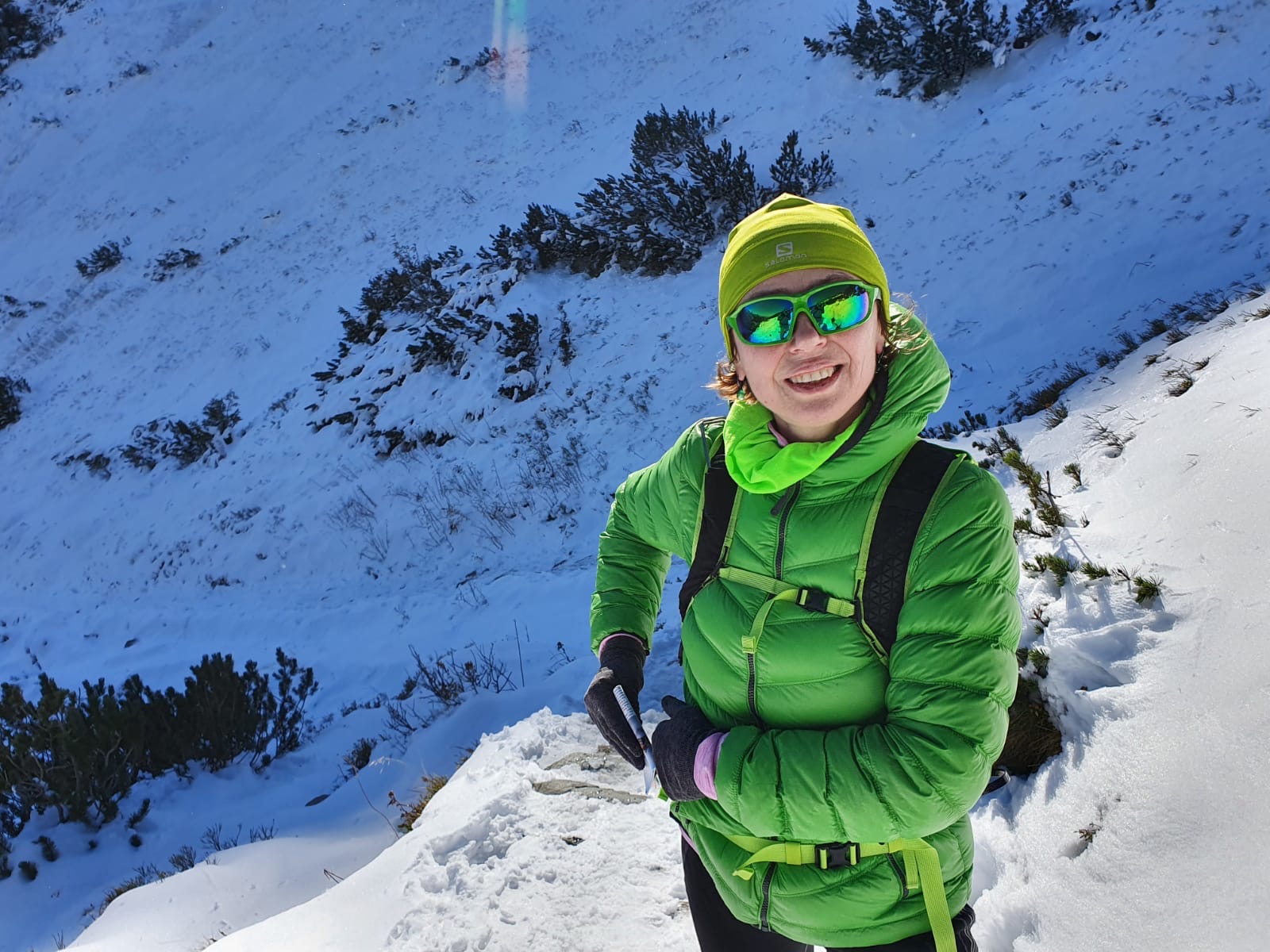 Agata Różańska grew up in Bydgoszcz, town in northern Poland. Her master's degree in astronomy, she completed at the Faculty of Physics University of Wasaw. PhD in astrophysics titled: Coexistence of the cold and the hot plasma in the vicinity of the black hole she defended in the year 2000 under the supervision of prof. Bożena Czerny. She obtained the habilitation degree for the work titled: The effects of X-ray reprocessing in Active Galactic Nuclei, in 2009. In the year 2020 she received the title of professor. Currently, she works at Nicolaus Copernicus Astronomical Center, Polish Academy of Sciences, Poland.
Her areas of research include simulations of radiative transfer through the warm ionized media, through the hot atmospheres of neutron stars and atmospheres of accretion disks around black holes in active galactic nuclei and in X-ray. She started the study of multi-phase regions around supermassive black holes in the centres of galaxies. Agata is a leader of Polish team of scientist and engineers working on the development of subsystems for the ATHENA (Advanced Telescope for High Energy Astrophysics – new generation space mission, with a launch foreseen in 2032. She is a member of Polish Astronomical Society, International Astronomical Union and European Astronomical Society. Since 2013, Agata is the Treasurer of the Polish Astronomical Society. In 2019 she was appointed a member of Space and Satellite Research Committee of the Polish Academy of Sciences for the 2019–2022 term. She was elected a Council member of the European Astronomical Society for the 2020–2024 term. Agata is an author of public outreach articles, lectures and popular science movies.
Agata Różańska grew up in Bydgoszcz, town in northern Poland. Her master's degree in astronomy, she completed at the Faculty of Physics University of Wasaw. PhD in astrophysics titled: Coexistence of the cold and the hot plasma in the vicinity of the black hole she defended in the year 2000 under the supervision of prof. Bożena Czerny. She obtained the habilitation degree for the work titled: The effects of X-ray reprocessing in Active Galactic Nuclei, in 2009. In the year 2020 she received the title of professor. Currently, she works at Nicolaus Copernicus Astronomical Center, Polish Academy of Sciences, Poland.
Her areas of research include simulations of radiative transfer through the warm ionized media, through the hot atmospheres of neutron stars and atmospheres of accretion disks around black holes in active galactic nuclei and in X-ray. She started the study of multi-phase regions around supermassive black holes in the centres of galaxies. Agata is a leader of Polish team of scientist and engineers working on the development of subsystems for the ATHENA (Advanced Telescope for High Energy Astrophysics – new generation space mission, with a launch foreseen in 2032. She is a member of Polish Astronomical Society, International Astronomical Union and European Astronomical Society. Since 2013, Agata is the Treasurer of the Polish Astronomical Society. In 2019 she was appointed a member of Space and Satellite Research Committee of the Polish Academy of Sciences for the 2019–2022 term. She was elected a Council member of the European Astronomical Society for the 2020–2024 term. Agata is an author of public outreach articles, lectures and popular science movies.
Thesis title: Coexistence of the cold and the hot plasma in the vicinity of the black hole
Supervisor: Bożena Czerny
Year of defence: 2000
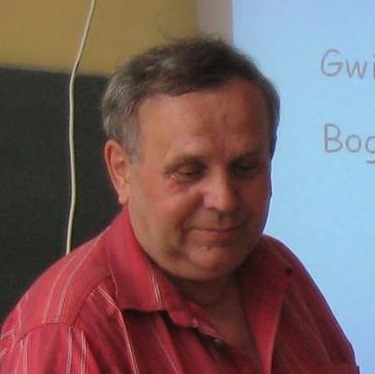
Ireneusz Włodarczyk was born on May 7, 1950, in Kalisz. He observed sunspots there and had sent the results to prof. Jan Mergentaler. After graduating from the Technical Secondary School of Economics there in 1969, he started studying astronomy, specializing in heliophysics, at the Faculty of Mathematics, Physics and Chemistry of the University of Wrocław. He finished it in 1974, defending his MA thesis under the supervision of doc. Bogdan Rompolt. For 37 years, he had worked in the Silesian Planetarium, from 1975, as the head of the local astronomical observatory. Since 1977 he has been observing asteroids and comets and has been studying their dynamics. He started the observations based on the substantive help of Assoc. Maciej Bielicki from the University of Warsaw. On June 11, 1998, he published in Brian Marsden's Minor Planet Center the first Polish astrometric position of the asteroid obtained using a modern SBIG-ST8 CCD camera (MPC 31 870) and on October 8, 1998, the first Polish astrometric comet position (MPC 32 565). Until 2000, he had published nearly 1,000 astrometric observations of asteroids and comets in the MPC. The observations were made by several employees of the Silesian Planetarium.
From 1983, he collaborated with prof. dr hab. Grzegorz Sitarski from the Space Research Center of the Polish Academy of Sciences in Warsaw. The cooperation consisted in testing own observations made in Chorzów and presenting the results of their calculations and own computer programs describing the movements of asteroids and comets. He deals with the observations and dynamics of Near-earth Asteroids and comets, including those discovered at the Moletai astronomical observatories in Lithuania, Baldone in Latvia and VATT in the USA, cooperating with these centres. He also deals with potential asteroid collisions with the Earth, including the dangerous asteroid Apophis until March 2021. He is also studying the evolution of asteroid families. In addition, he deals with the dynamics of Mars crossers as well as asteroids and comets in retrograde orbits.
In 2011, together with astronomy enthusiasts in Rozdrazew, a commune in Greater Poland, they established the 19th branch of the Polish Society of Amateur Astronomers. From the beginning until now, 2021, he is its president. He is a member of Divisions A, C and F of the International Astronomical Union.
Thesis title: Influence of Accuracy of Determination of Orbit of Asteroids and Comets for Prediction theirs Motions over Long Intervals of Time
Supervisor: Grzegorz Sitarski
Year of defence: 2000
(Center for Astrophysics | Harvard & Smithsonian)
Thesis title: Exploring the Central Power House of Quasars via Emission Lines
Supervisor: Bożena Czerny
Year of defence: 1999
(Space Research Center, Polish Academy of Sciences, Warsaw)
Thesis title: Analysis of Physical Properties of a Cometary Nucleus Based on Investigations of Nongravitational Perturbations in the Orbital Motion of a Comet
Supervisor: Grzegorz Sitarski
Year of defence: 1999
Thesis title: Planetary Nebulae with Wolf-Rayet Type Central Stars
Supervisor: Romuald Tylenda
Year of defence: 1998
(Nicolaus Copernicus Astronomical Center)
Thesis title: Reasons for Bimodal Distribution of Jet Activity of Quasars
Supervisor: Marek Sikora
Year of defence: 1998
(University of Warsaw)
Thesis title: Pulsations and Stability of Neutron Stars and Strange Stars
Supervisor: Paweł Haensel
Year of defence: 1998
(Nicolaus Copernicus Astronomical Center, Toruń)
Thesis title: Analysis of the Spectroscopic Observations of Hypergiant HR 8752 with Application of Atmosperic Models
Supervisor: Romuald Tylenda
Year of defence: 1998
(Astronomical Observatory of the Jagiellonian University, Kraków, Poland)
Thesis title: Niestabilność pulsacyjna gwiazd wczesnych typów widmowych podwójnej gromady h oraz x Persei
Supervisor: Jerzy M. Kreiner
Year of defence: 1997
(Nicolaus Copernicus Astronomical Center)
Thesis title: Statistics and Dynamics of Large Scale Cosmic Fields in Weakly Nonlinear Regime
Supervisor: Roman Juszkiewicz
Year of defence: 1997
(Nicolaus Copernicus Astronomical Center)
Thesis title: Poszukiwanie gwiazd zmiennych w gromadach kulistych i starych gromadach otwartych
Supervisor: Janusz Kałużny
Year of defence: 1997
(European Southern Observatory, Garching, Germany)
Thesis title: The Long - and Short - Timescale Light Variations in Symbiotic Stars
Supervisor: Joanna Mikołajewska
Year of defence: 1996
(University of Lodz, Poland)
Thesis title: The Effect of Electron-Positron Pair Production and Thermal Conduction in Compact Objects
Supervisor: Andrzej Zdziarski
Year of defence: 1996
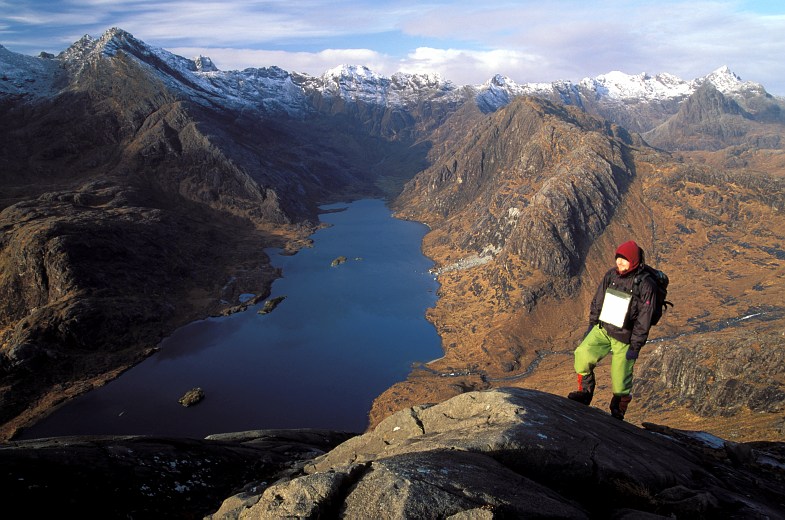
Thesis title: Variable Radiation From Jets and x/gamma Emission From AGNs
Supervisor: Jerzy Machalski
Year of defence: 1996
(University of Nevada, Las Vegas, USA)
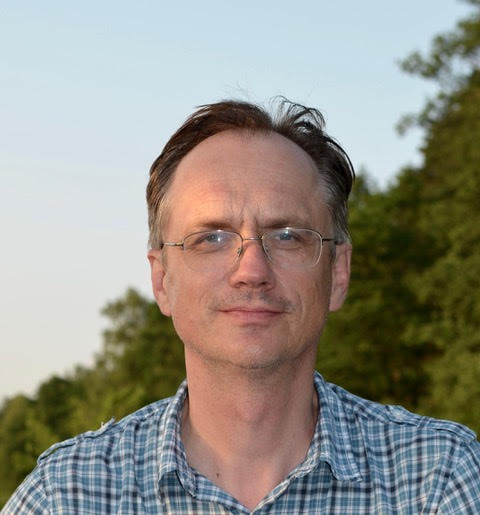
Thesis title: Illumination in Symbiotic Binary Stars: NLTE Photoionization Models
Supervisor: Joanna Mikołajewska
Year of defence: 1996
(Nicolaus Copernicus Astronomical Center)
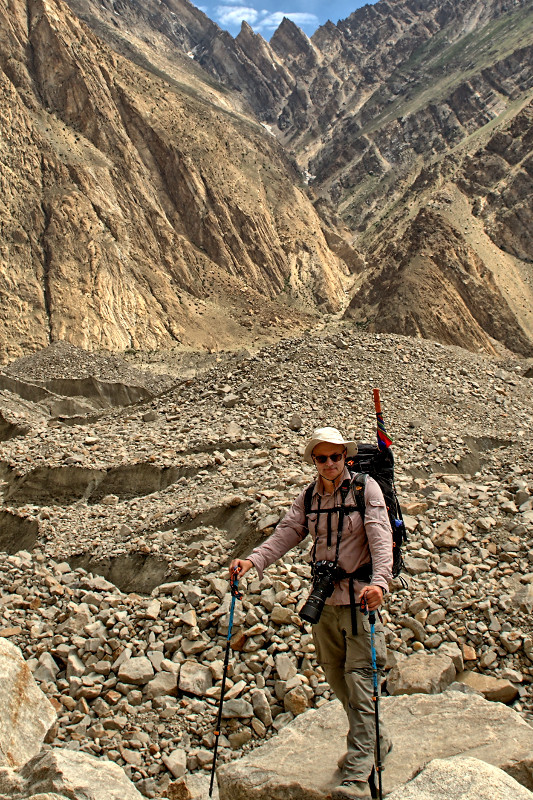
Piotr Zycki started working in CAMK as research assistant in 1991. He got his PhD in 1995 and then spent three years at University of Durham (UK) as a post-doc, collaborating with Chris Done. After returning to CAMK he continues his research in Warsaw. He obtained the 'habilitacja' degree in 2002. In 2008 he received the title of professor. His research interests revolve around accretion onto compact objects, mostly black holes. He has done various aspects of data analysis and simulations on spectral and temporal properties of X-ray emission from accretion flows. He is especially interested in properties of quasi-periodic oscillations (QPO) in X-rays, which he studies with the goal of constraining possible models of QPO. He is also involved with the institute administration and management, serving as the institute director 2014-2022.
Thesis title: X-Ray Emission and Reprocessing in Active Galactic Nuclei
Supervisor: Andrzej Zdziarski
Year of defence: 1995
(Nicolaus Copernicus Astronomical Center)
Thesis title: Wtórne grawitacyjne anizotropie mikrofalowego promieniowania tła
Supervisor: Marek Demiański
Year of defence: 1994
(University of Białystok, Poland)
Thesis title: Analysis of the Gravitational Wave Signal from a Compact Binary System
Supervisor: Andrzej Królak
Year of defence: 1994
(Centre National de la Recherche Scientifique, Laboratoire Astroparticule et Cosmologie, France)
Thesis title: Całkowanie równania Boltzmanna dla fotonów w rozszerzającym się Wszechświecie
Supervisor: Marek Demiański
Year of defence: 1994
(European Southern Observatory, Garching, Germany)
Thesis title: Widmo liniowe kwazarów
Supervisor: Bożena Czerny
Year of defence: 1991
(Chandra X-ray Center of the Center for Astrophysics | Harvard & Smithsonian)
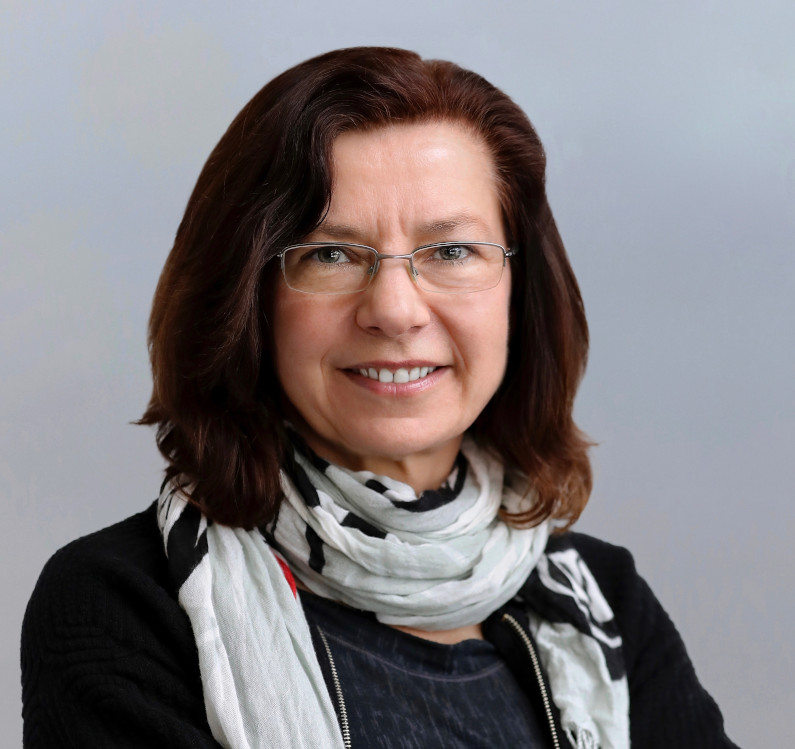
Aneta Siemiginowska is a Senior Astrophysicist at the Chandra X-ray Center of the Center for Astrophysics | Harvard & Smithsonian. She has worked in both theoretical and observational aspects of X-ray astronomy with interests in extragalactic radio sources, quasars, powerful jets and statistical methods. She is a founding member of the CHASC Astrostatistics Center, promoting collaborations between astrophysicists and statisticians. Her main statistical interests include principled and advanced statistical methods for high energy astrophysics data. She studies extragalactic radio sources and quasars, and has discovered a number of hundred-kiloparsec long relativistic X-ray jets associated with distant quasars.
Thesis title: Thin accretion disks in Active Galactic Nuclei: theory and observations
Supervisor: Bożena Czerny
Year of defence: 1991
(Nicolaus Copernicus Astronomical Center, Polish Academy of Sciences, Toruń)
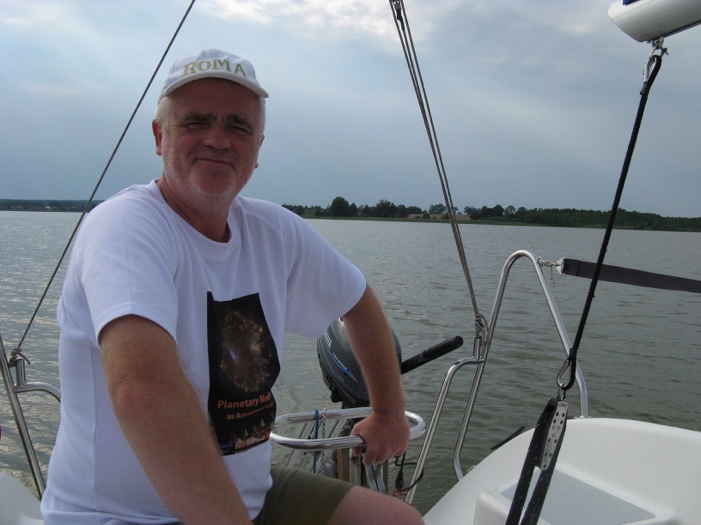
Ryszard Szczerba was born and raised in Warmia, in north-eastern Poland. He studied theoretical physics and mathematics at the Nicolaus Copernicus University in Toruń, obtaining a master's degree in theoretical physics (in particular quantum mechanics). His interests changed, however, and in 1991 he obtained a PhD in astrophysics at our Institute under the supervision of prof. Romuald Tylenda. One of the results of this work was the photoionization code used by others, but also included in the time-dependent photoionization code developed by students and collaborators of prof. Detlef Schoenberner. After obtaining his PhD, he completed a one-year postdoctoral fellowship at the Institute d'Astrophysique de Paris working with prof. Alain Omont, and then a 2-year postdoctoral fellowship at the University of Calgary working with prof. Sun Kwok. After returning to CAMK in 1995, he developed collaboration with many groups and individuals in Europe and beyond, incl. Profs. Grażyna Stasińska (Muedon), Detlef Schoenberner (Kiel / Potsdam), Thomas Henning (Jena / Heidelberg), Peisheng Chen (Kunming), Biwei Jiang (Beijng), Jurgen Stutzki (Koeln), and Drs. Pedro Garcia-Lario (ESAC/Madrid), Kevin Volk (Baltimore), Dr. Eric Lagadec (Nice). In 2000, he obtained his habilitation at CAMK for the work "Stationary and hydrodynamic models of dust-gas envelopes around AGB and post-AGB stars: analysis of infrared spectral features". In 2008, he received the title of professor from the President of the Republic of Poland and was appointed to the position of professor at CAMK. His interests are mainly related to the study of evolved stars by means of space based observations in infrared and at submillimeter spectral range. He was the lead co-I for Poland on the Herschel / HIFI instrument and a member of the SPICA Heads of Nations before the mission was removed from the M5 competition by ESA. Since 2015, he is serving as the Chairman of the Scientific Council of our Institute.
Thesis title: Testing the evolution of planetary nebulae with distance-independent methods
Supervisor: Romuald Tylenda
Year of defence: 1991
(Nicolaus Copernicus Astronomical Center)
Thesis title: Efekt Comptona i proces produkcji par pozyton-elektron w astrofizyce wysokich energii
Supervisor: Andrzej Zdziarski
Year of defence: 1991
(Astronomical Observatory of the Jagiellonian University, Kraków, Poland)
Thesis title: Alaliza fotoelektrycznych krzywych zmian blasku układów typu algola z dyskami akrecyjnymi: RZ Oph i KU Cyg
Supervisor: Józef Smak
Year of defence: 1991
(University of Toronto, Canada)
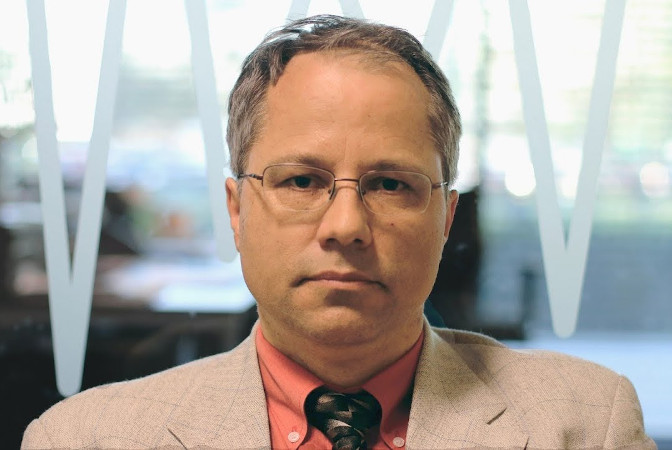
Pawel Artymowicz studied astronomy and physics at Warsaw University, and worked on his PhD thesis (defended at CAMK) at Space Telescope Sci. Institute in Baltimore. He was a NASA Hubble Fellow at UC Santa Cruz in California, senior researcher and assistant prof. in Stockholm University, and from 2005 full prof. of Physics and Astrophysics at University of Toronto. His highly cited work deals with the origin and evolution of binary and planetary systems, both analytically and numerically. He builds supercomputing clusters. Following a Polish presidential plane catastrophe in 2010, as scientist and pilot with 22 years of experience he has helped to investigate the details of the accident.
Thesis title: Fale gęstości w galaktykach
Supervisor: Wojciech Dziembowski
Year of defence: 1990
(Planetarium and Astronomical Observatory in Olsztyn)
Thesis title: Zagadnienie orbit okresowych w ograniczonym problemie 4-ciał
Supervisor: Grzegorz Sitarski
Year of defence: 1989
(Nicolaus Copernicus University, Toruń, Poland)
Thesis title: Modelowanie profili linii dla aktywnej otoczki skrajnego nadolbrzyma Rho Cas
Supervisor: Jan Smoliński
Year of defence: 1989
(Nicolaus Copernicus Astronomical Center)
Thesis title: Physical processes in globular clusters
Supervisor: Jerzy Stodółkiewicz
Year of defence: 1989
Thesis title: Astrofizyka strun kosmicznych
Supervisor: Marek Demiański
Year of defence: 1989
(School of Physics and Astronomy, University of Birmingham, UK)
Thesis title: Właściwości rentgenowskie źródła Cygnus X-1
Supervisor: Jerzy Stodółkiewicz
Year of defence: 1988
(Space Research Centre, Polish Academy of Sciences, Warsaw)
Thesis title: Interpretacja obserwowanych amplitud pulsacji gwiazd typu delta Scuti
Supervisor: Wojciech Dziembowski
Year of defence: 1988
(Institute for the History of Science, Polish Academy of Sciences, Warsaw)
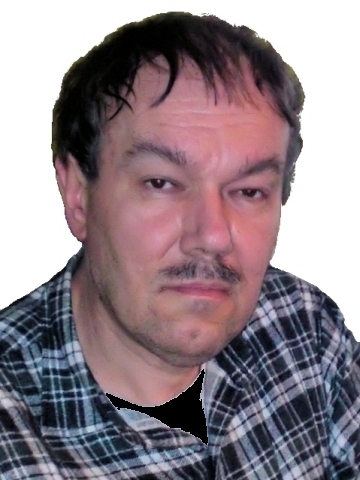
After getting my PhD in cosmology, I switched to mathematics, more specifically number theory and its history. In analytical number theory, I obtained a globally convergent series expansion for the famous zeta function of Riemann (1997) – one of the two known so far. My results in number theory gained recognition and reception among specialists. In particular, on the basis of my representation of the zeta function, the well-known Venezuelan mathematician Luis Báez-Duarte obtained an interesting criterion for the Riemann hypothesis (2003) – the most important unsolved problem in number theory. Since 2005, after receiving my habilitation for the monograph Liczba i kwant, I have been working at the Institute of the History of Science of the Polish Academy of Sciences.
Website: http://ihnpan.pl/krzysztof-maslanka/
Thesis title: Efekty kwantowe w wielowymiarowych modelach kosmologicznych
Supervisor: Marek Demiański
Year of defence: 1988
Thesis title: Wpływ drobnych efektów dynamicznych i obserwacyjnych na dokładność orbity komety (na przykładzie komety P/Gunn)
Supervisor: Grzegorz Sitarski
Year of defence: 1988
(Nicolaus Copernicus Astronomical Center)
Thesis title: Phase transitions in dense matter and properties of netron stars
Supervisor: Paweł Haensel
Year of defence: 1988
(Nicolaus Copernicus Astronomical Center)
Thesis title: Okresowe cykle graniczne w teorii pulsacji gwiazd
Supervisor: Wojciech Dziembowski
Year of defence: 1987
Thesis title: Wielkoskalowa anizotropia mikrofalowego promieniowania tła
Supervisor: Marek Demiański
Year of defence: 1987
(Nicolaus Copernicus Astronomical Center)
Thesis title: Akrecja materii na małomasywne gwiazdy ciągu głównego i jej wpływ na ewolucję ukadów podwójnych
Supervisor: Janusz Ziółkowski
Year of defence: 1987
Thesis title: Analiza zaćmień nowych karłowatych typu SU Ursae Majoris
Year of defence: 1987
Thesis title: Wyznaczanie funkcji świecenia galaktyk
Supervisor: Andrzej Kruszewski
Year of defence: 1986
Thesis title: Analiza zmian okresów w kontaktowych układach podwójnych gwiazd typu W Ursae Maioris
Supervisor: Jerzy M. Kreiner
Year of defence: 1986
(Nicolaus Copernicus Astronomical Center)
Thesis title: Trójwymiarowe fale w dyskach
Supervisor: Wojciech Dziembowski
Year of defence: 1986
(Center for Theoretical Physics of PAS)
Thesis title: Transoniczna akrecja dyskowa
Supervisor: Jerzy Stodółkiewicz
Year of defence: 1984
Thesis title: Berstery rentgenowskie
Supervisor: Jerzy Stodółkiewicz
Year of defence: 1984
(Nicolaus Copernicus Astronomical Center, Toruń)
Thesis title: Model obszarów emisji liniowej w aktywnych jądrach galaktyk
Supervisor: Antoni Stawikowski
Year of defence: 1984
Thesis title: Analiza porównawcza źródła rentgenowskiego SERPENS X-1
Supervisor: Józef Smak
Year of defence: 1982
(Space Research Center, Polish Academy of Sciences, Toruń)
Thesis title: Fale elektrostatyczne w jonosferze Ziemi obserwowane z pokładu satelity "INTERKOSMOS-KOPERNIK 5OO"
Supervisor: Andrzej Wernik
Year of defence: 1981
(Nicolaus Copernicus Astronomical Center)
Thesis title: Pole promieniowania dysków akrecyjnych
Supervisor: Bohdan Paczyński
Year of defence: 1980
To modify or update your profile please contact phdstudies@camk.edu.pl
The website was created as part of the CAMK's Foreign Promotion programme financed by the National Agency for Academic Exchange.